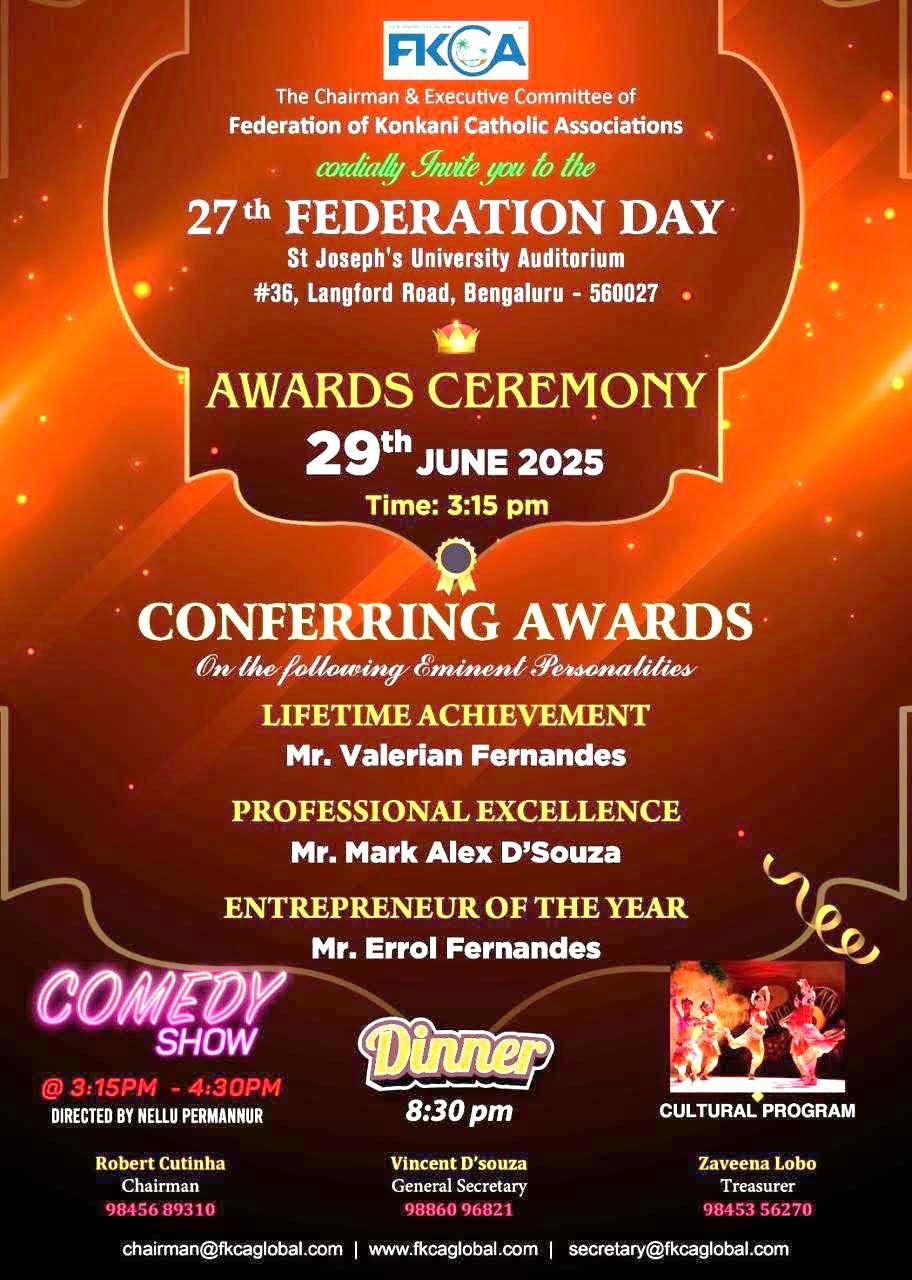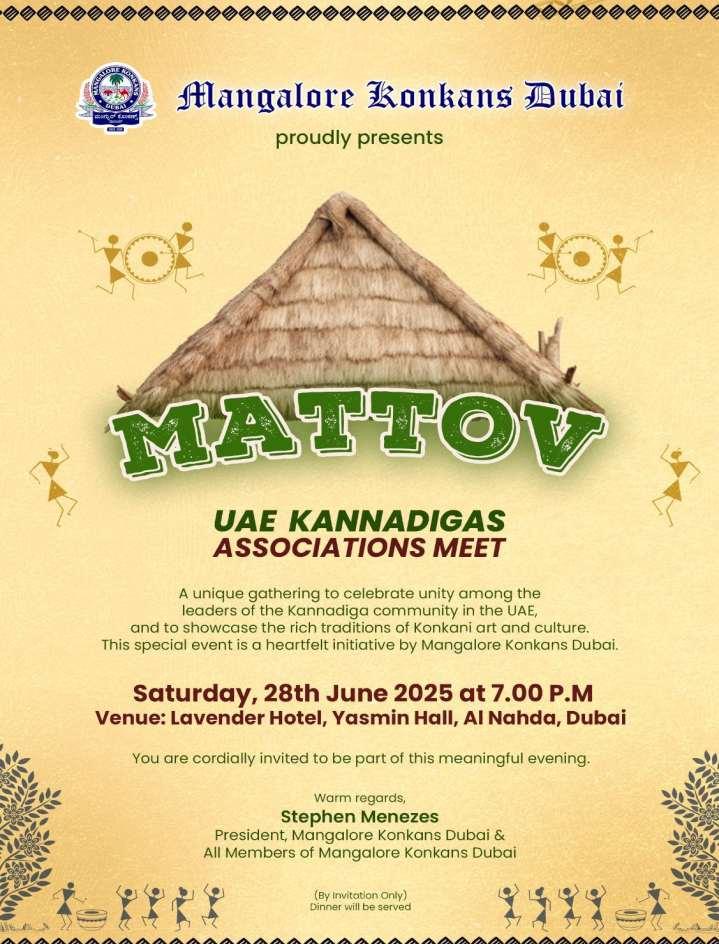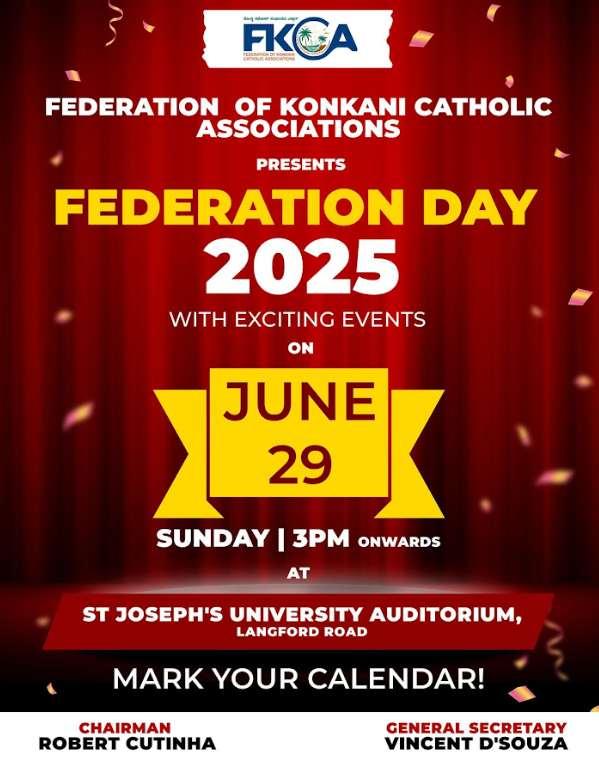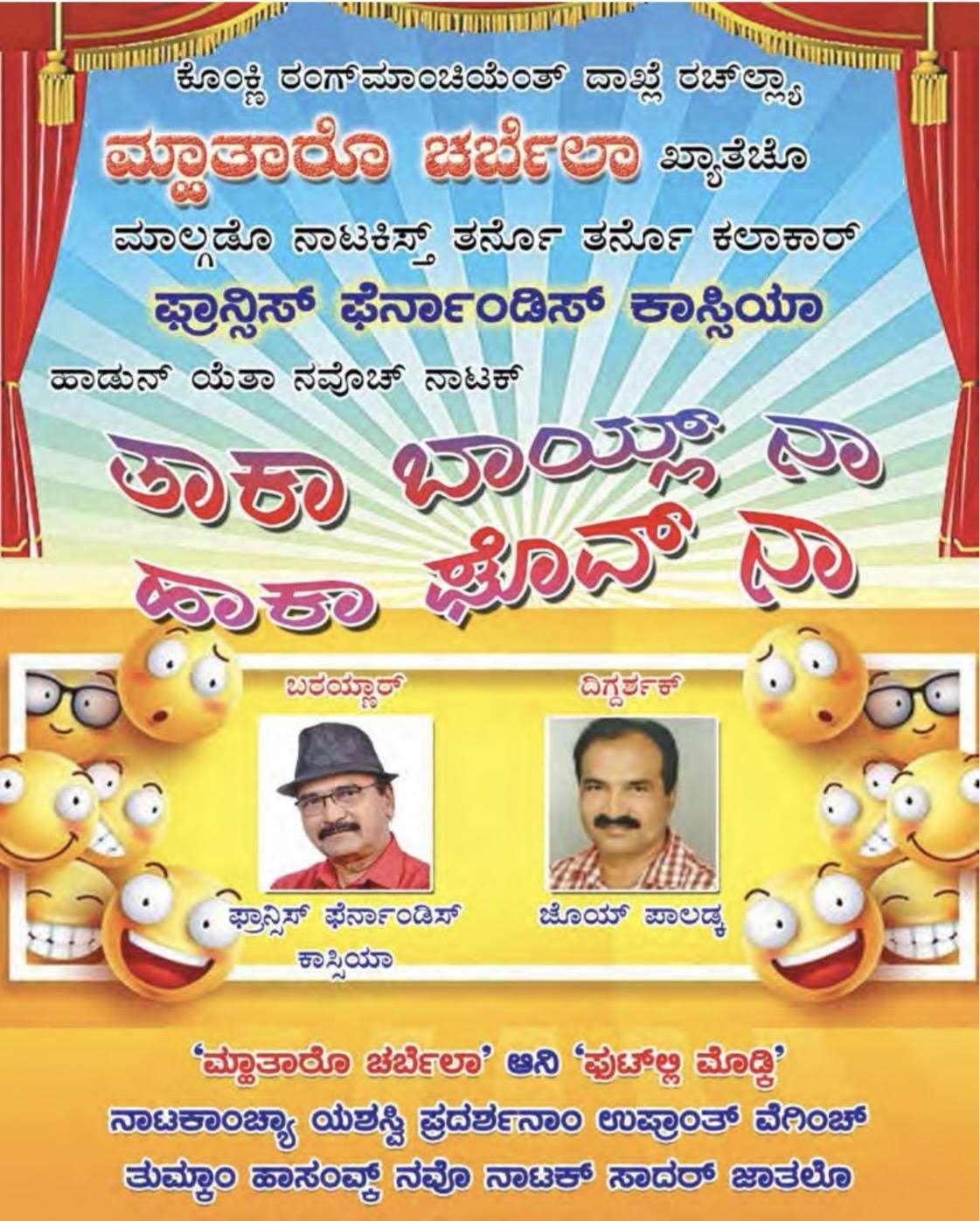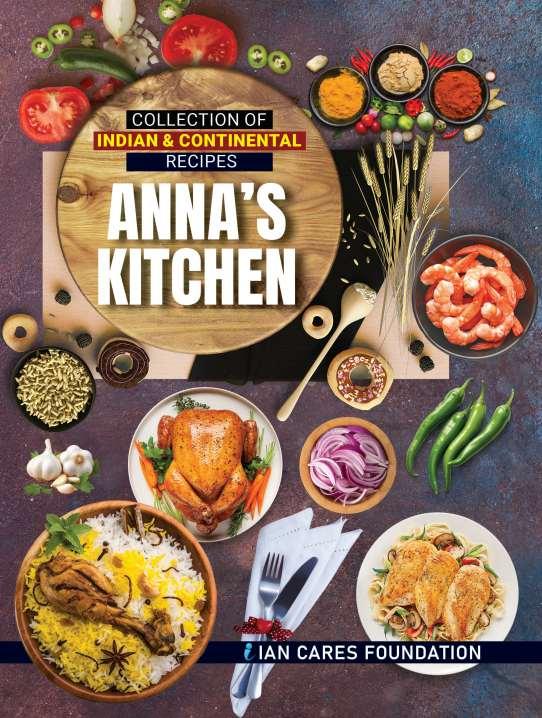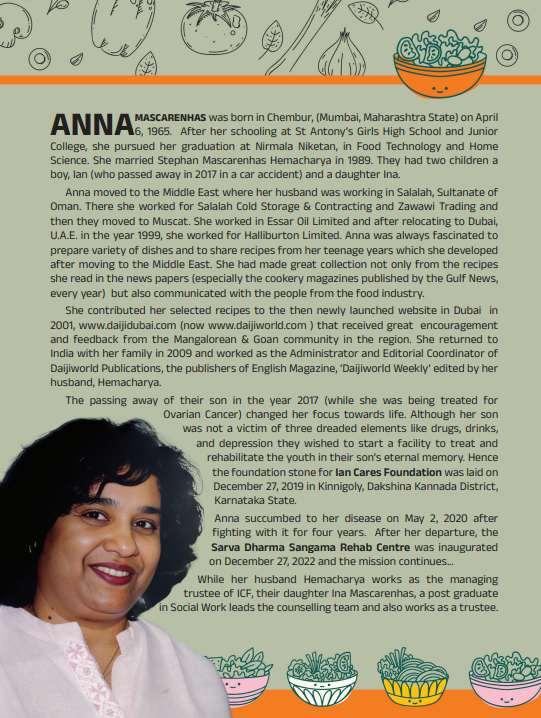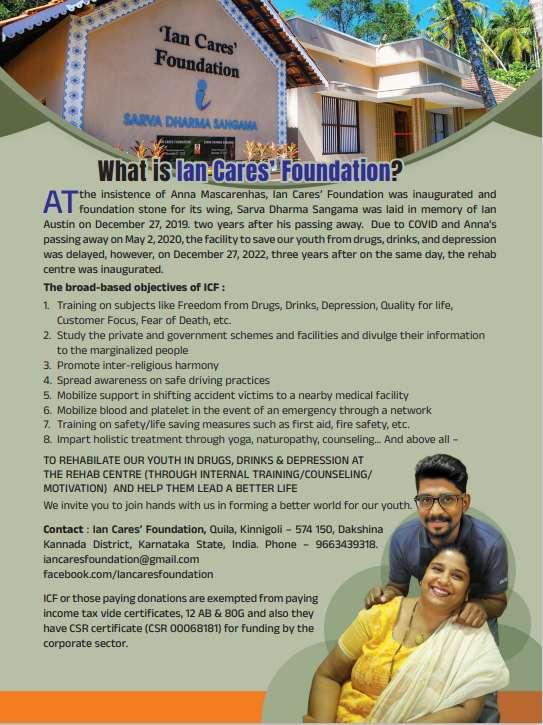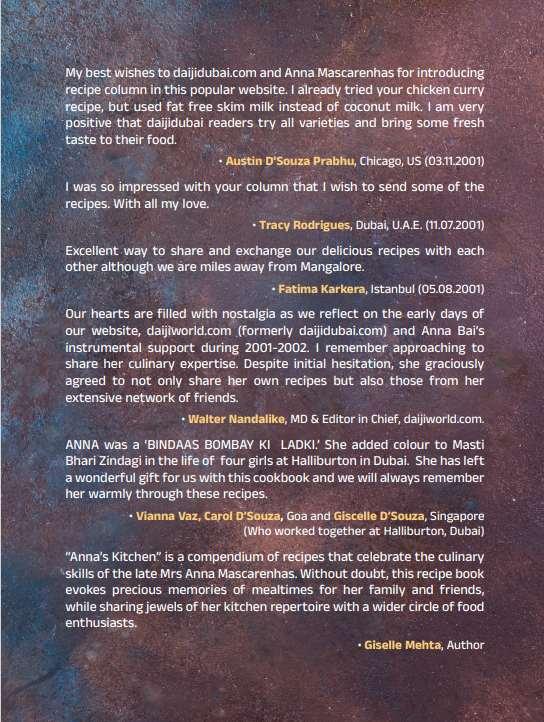













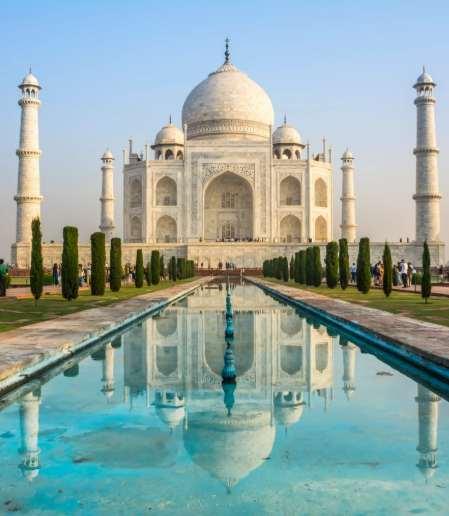










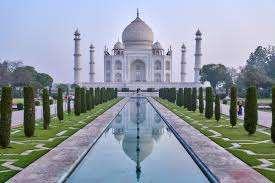
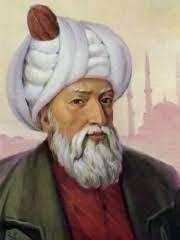
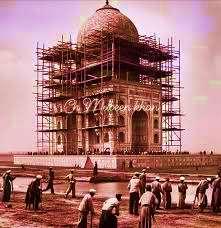
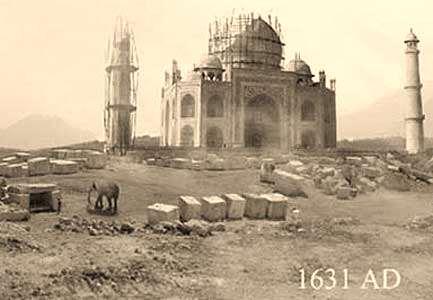
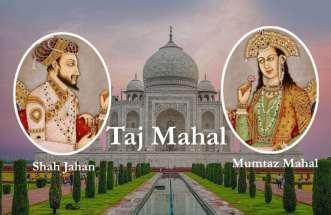
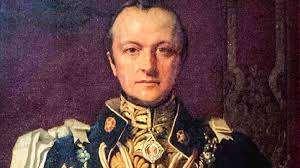
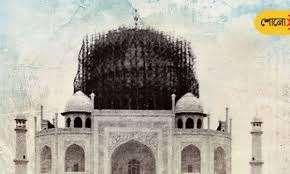
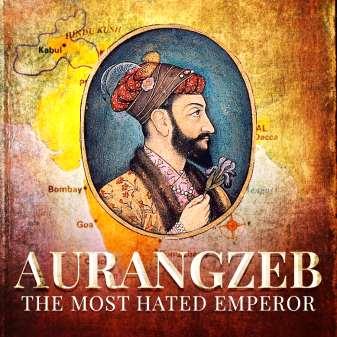
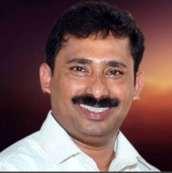
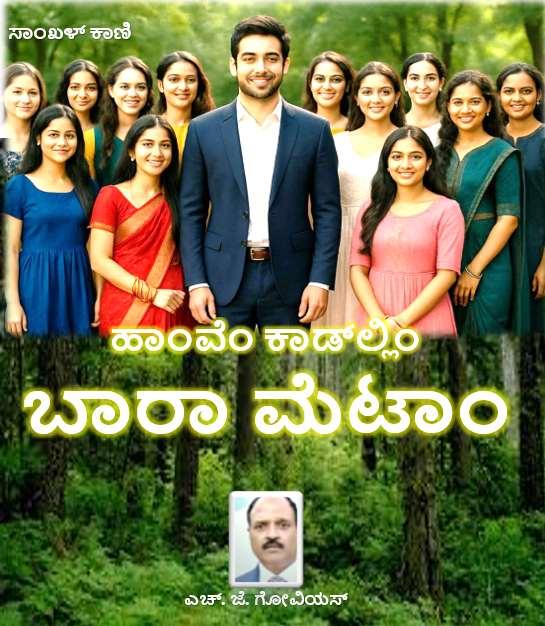



















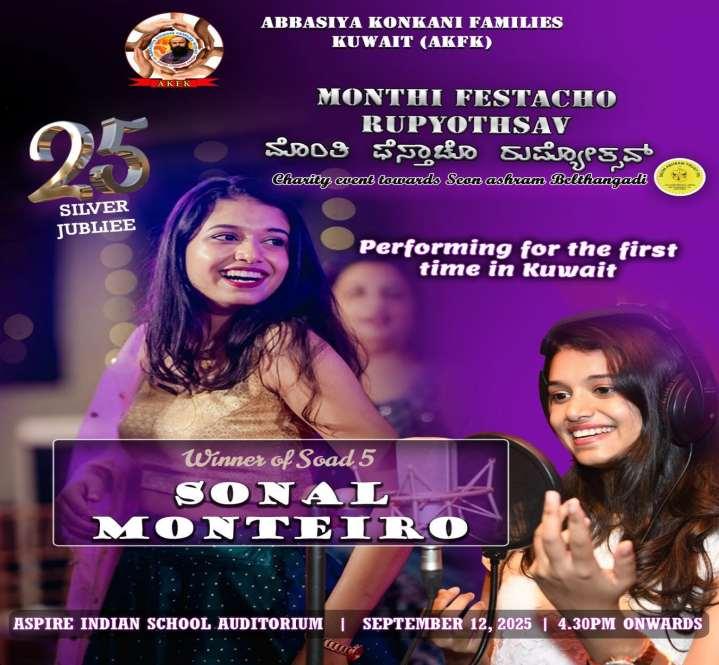




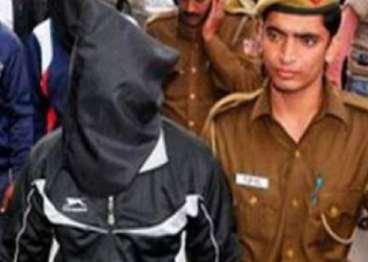
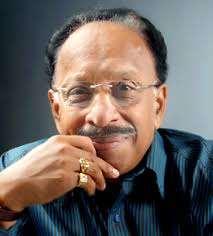
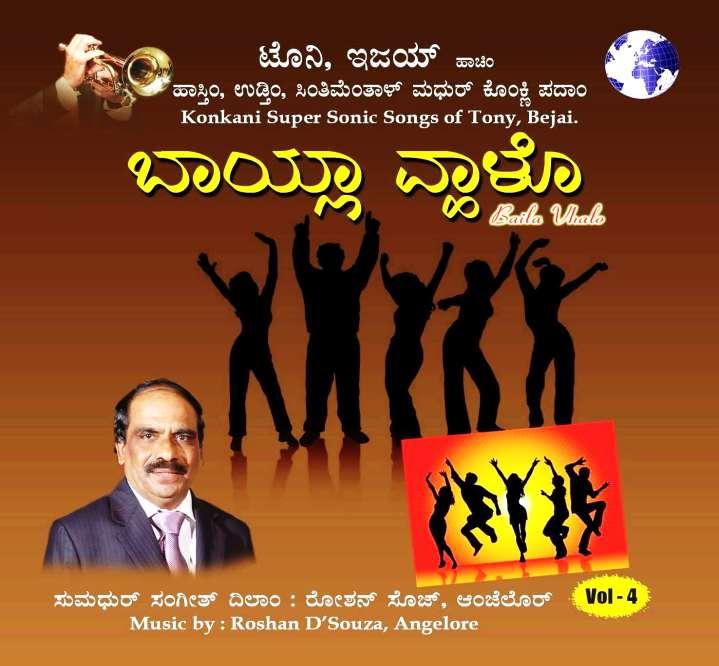
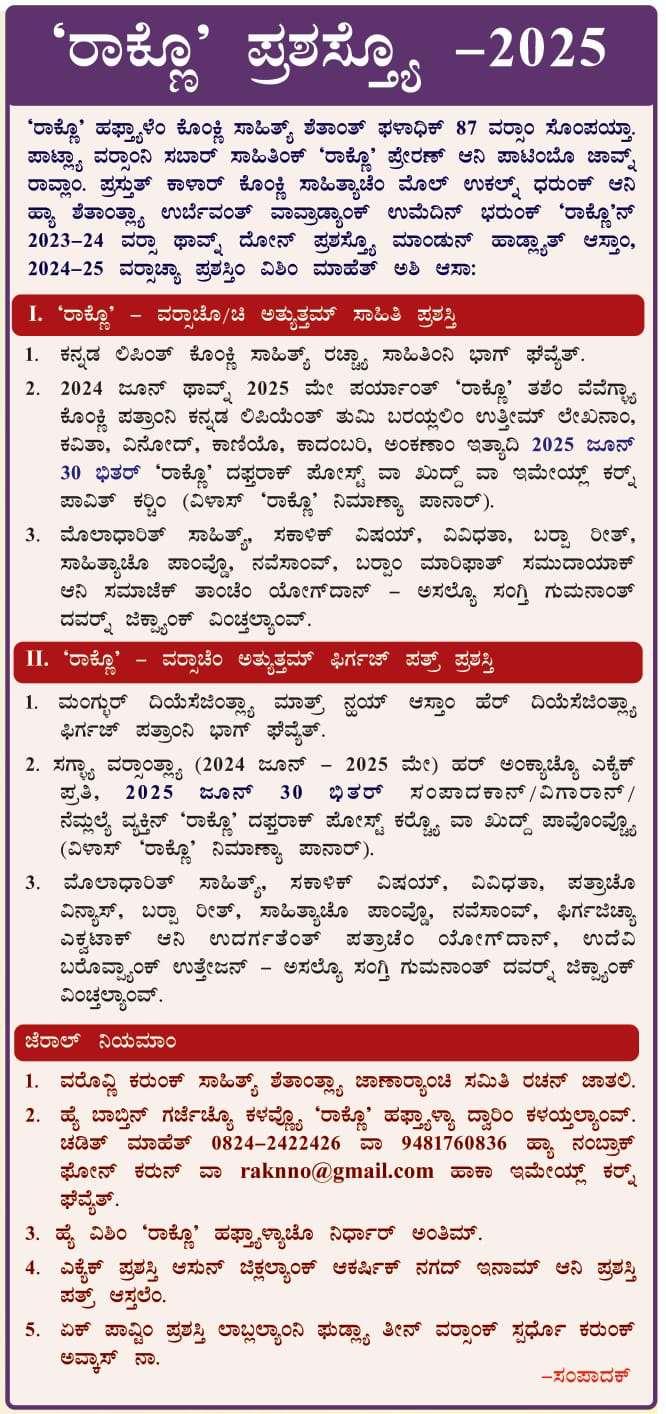

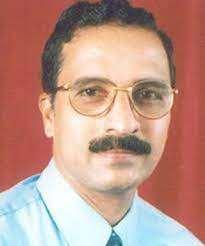







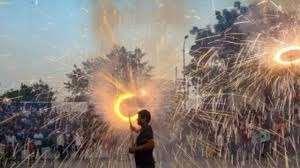
























30:15,19.
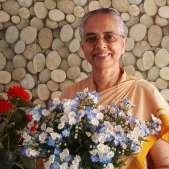







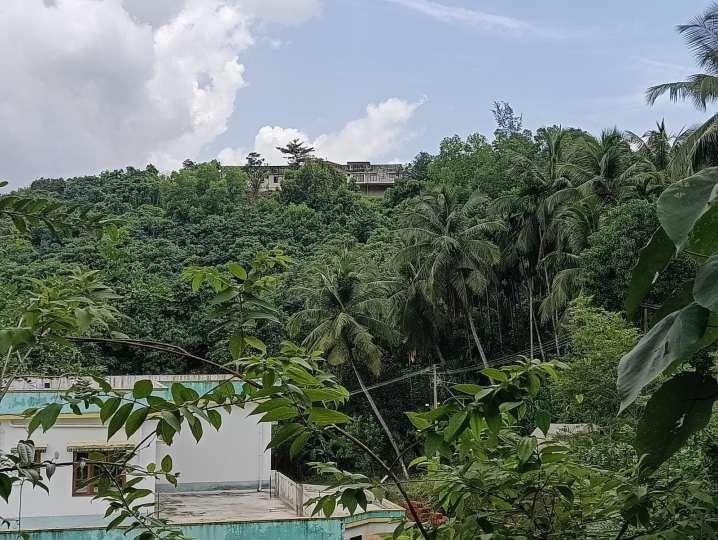

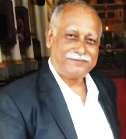

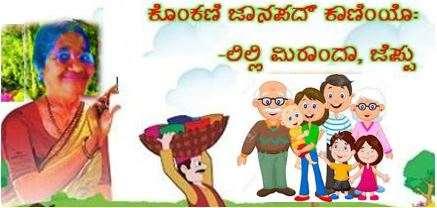
























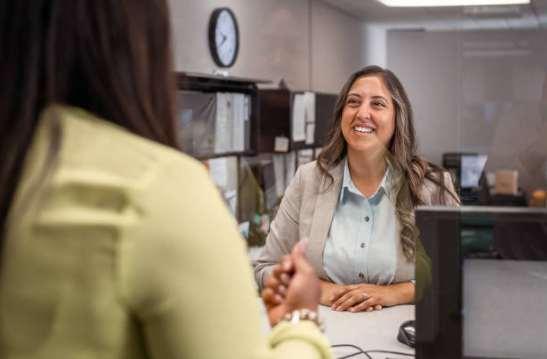
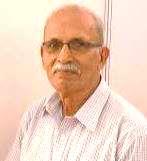




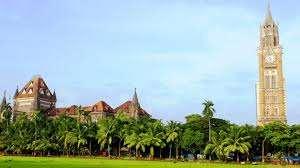
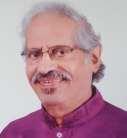
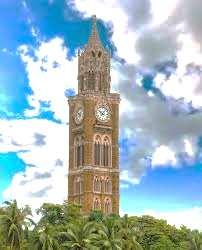
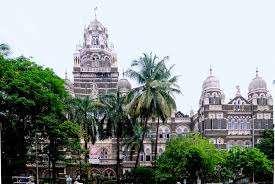
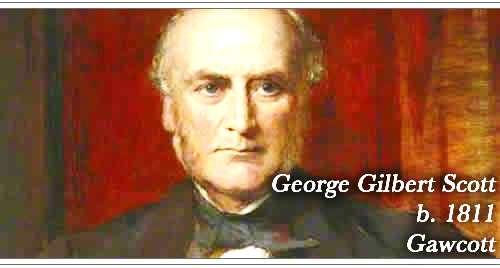
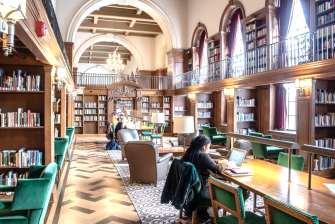

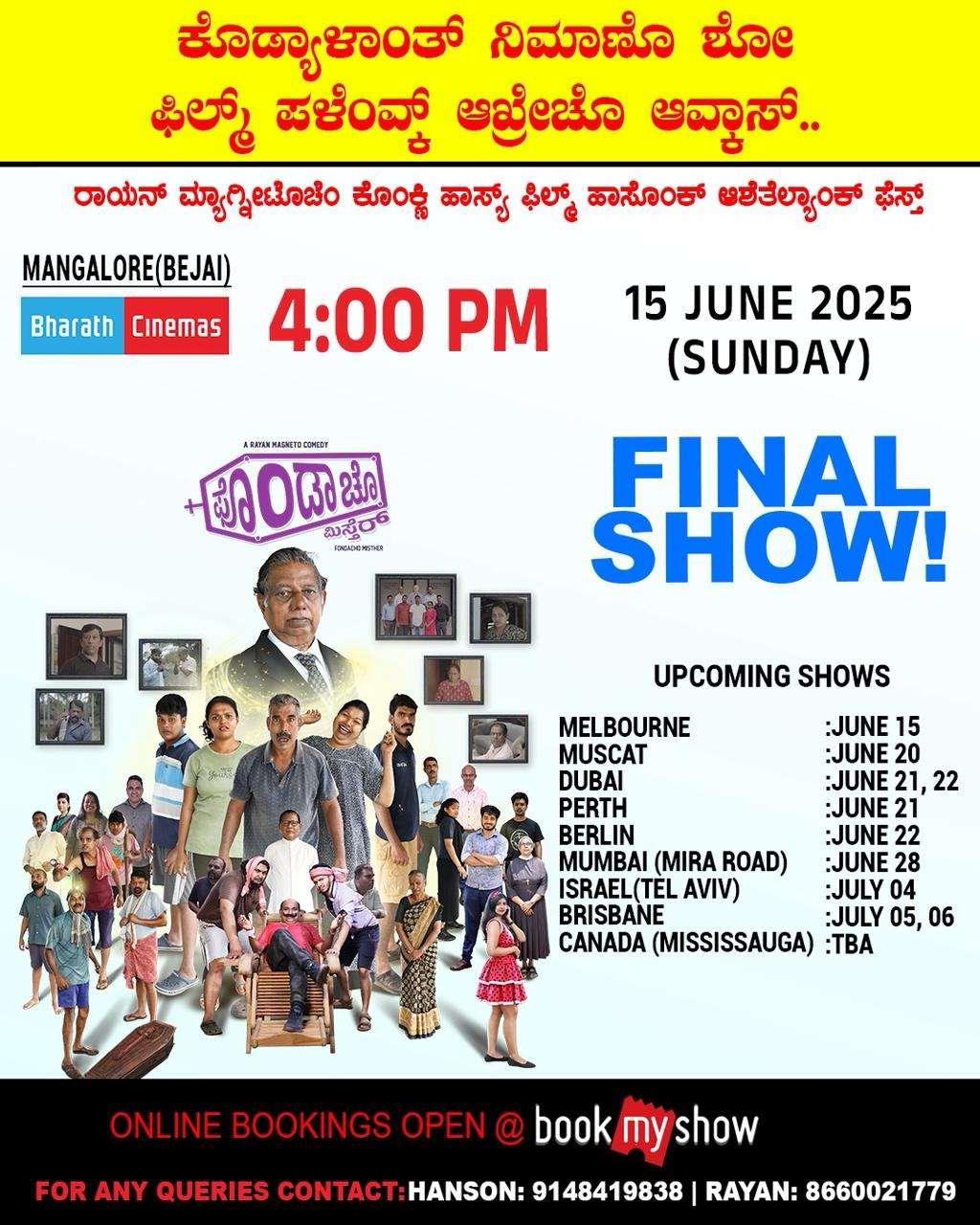
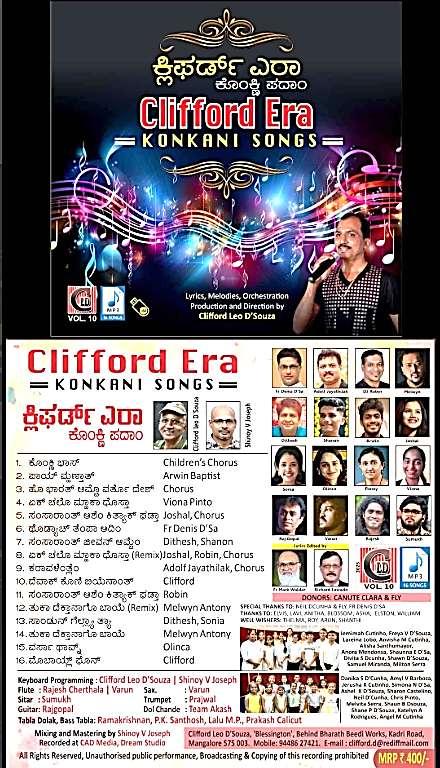

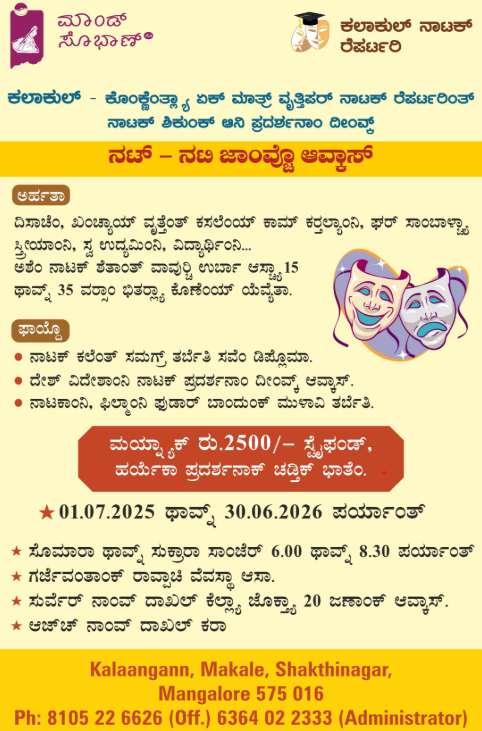


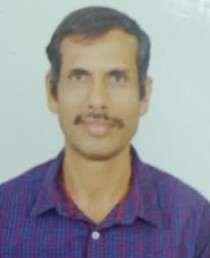






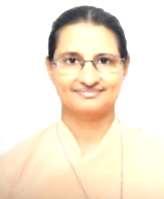








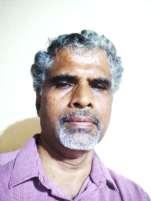



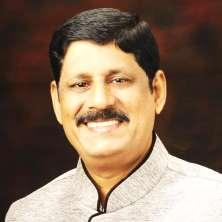








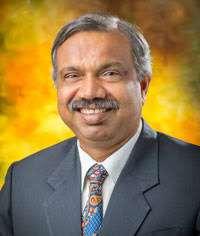



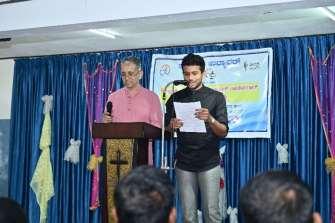
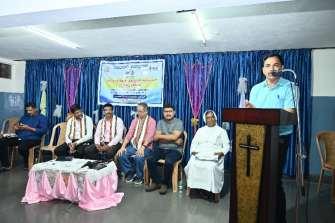
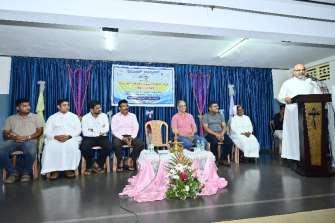
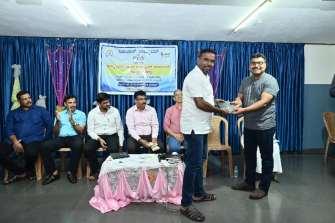
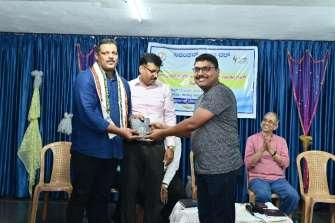
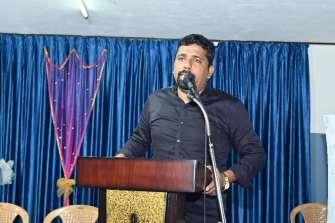
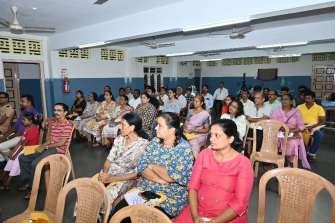
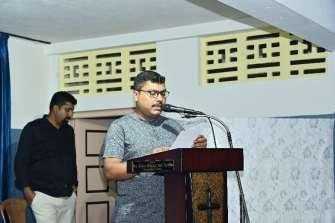
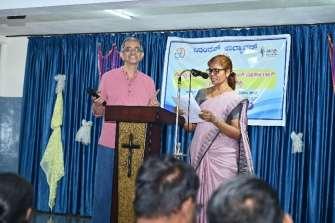
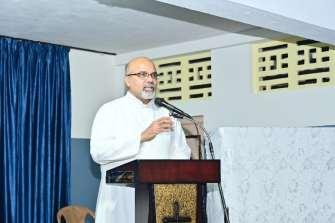
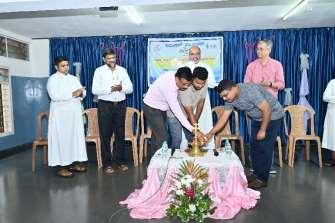
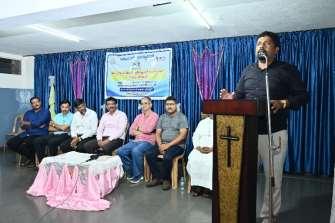
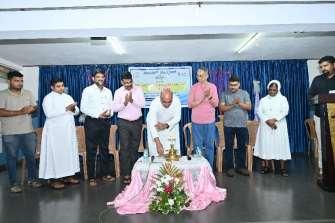
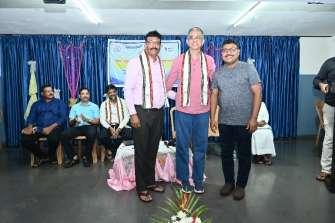
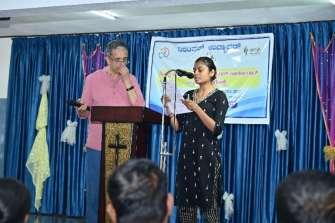
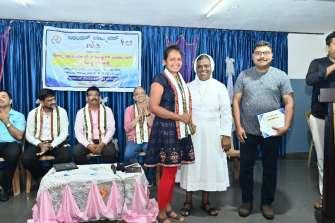
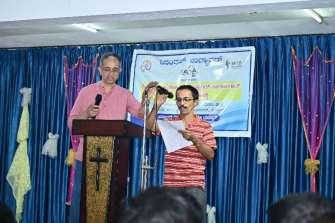
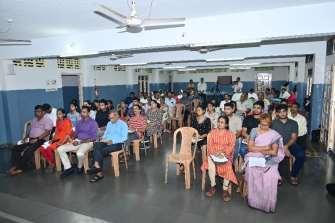
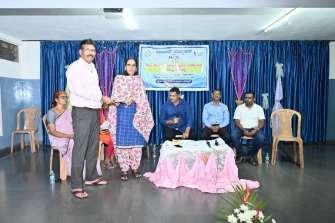
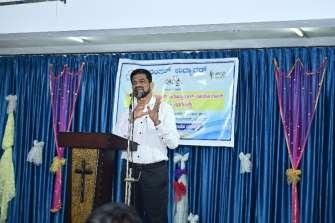
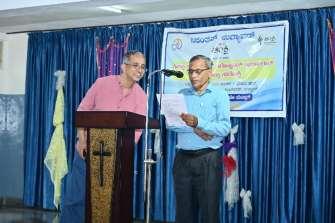
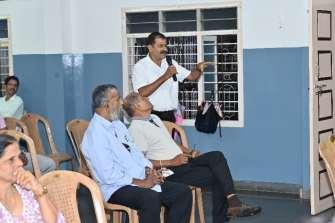
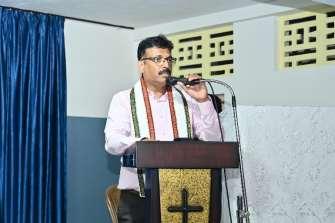
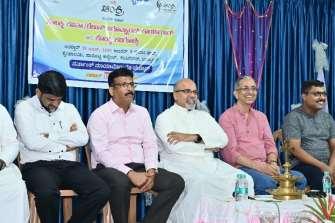
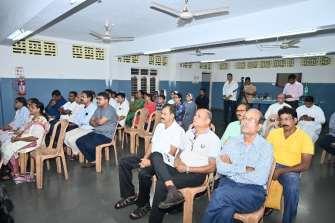
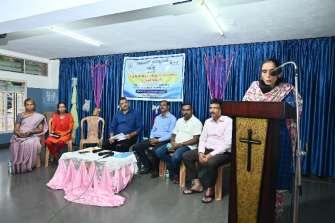
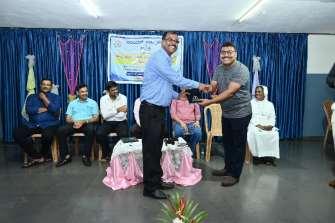
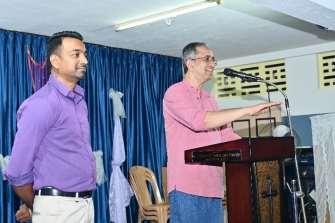
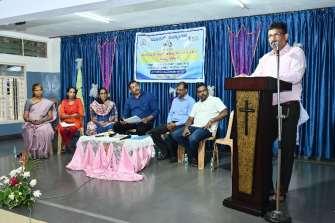
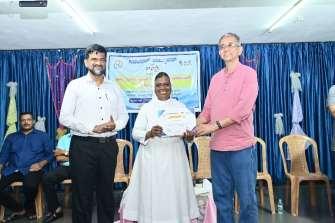
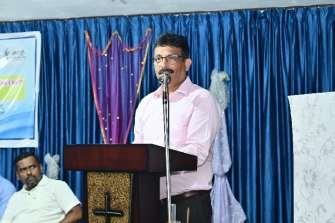
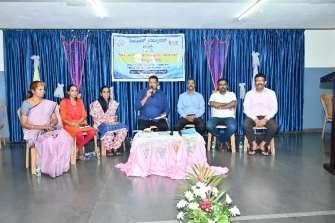
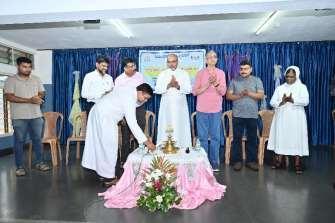
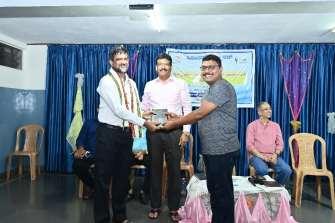
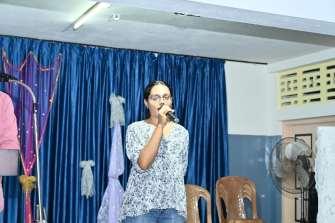
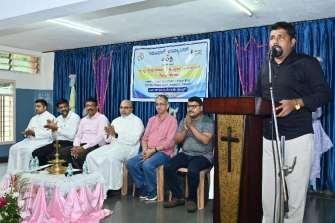
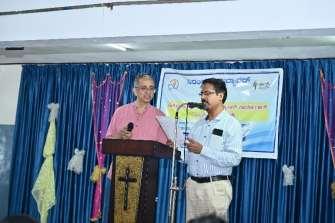
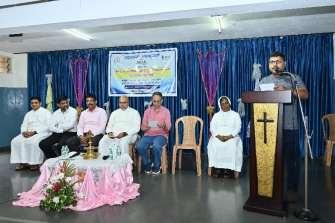
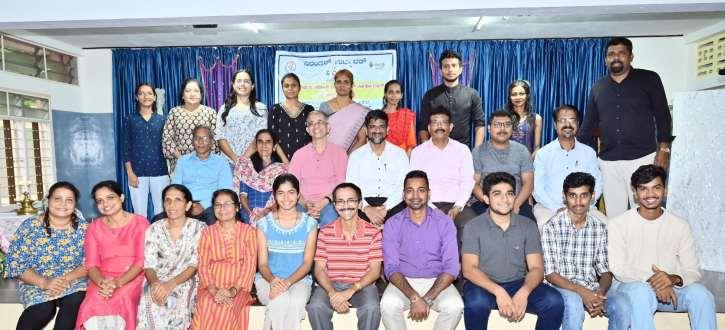

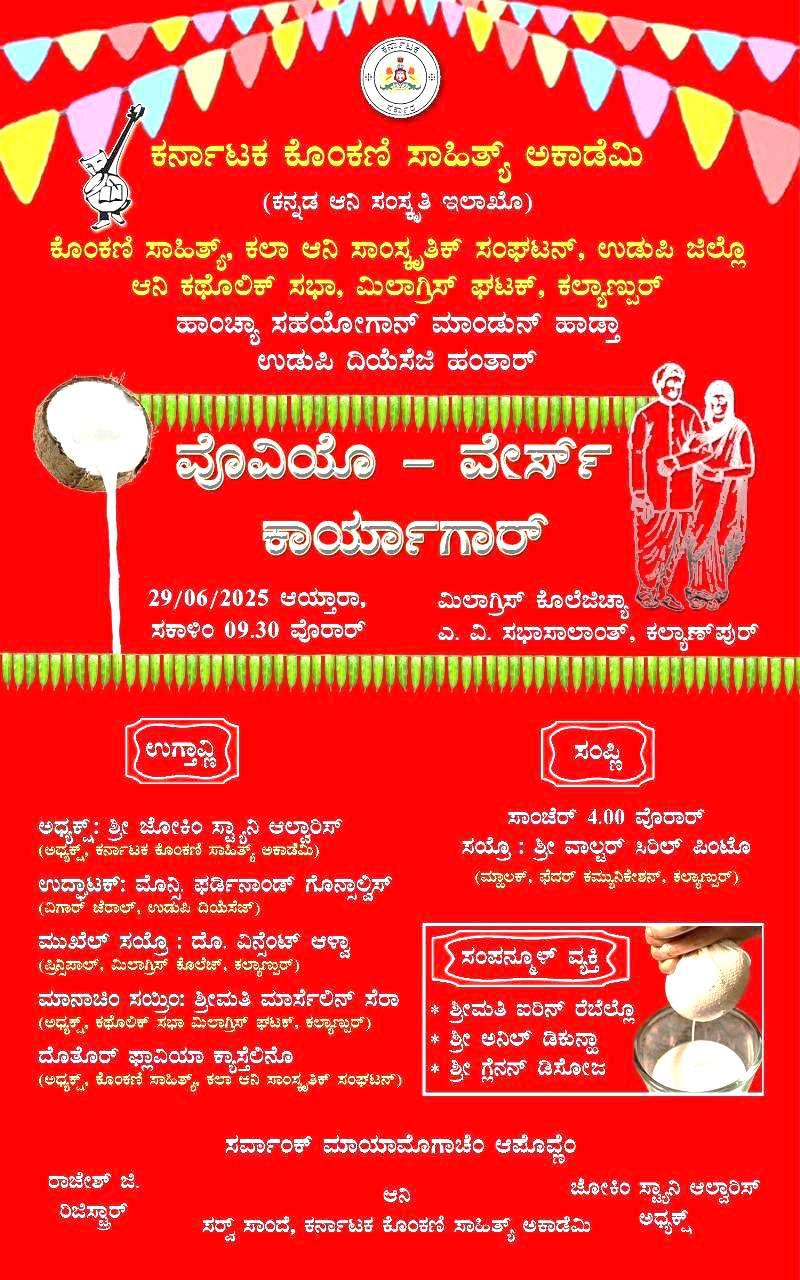
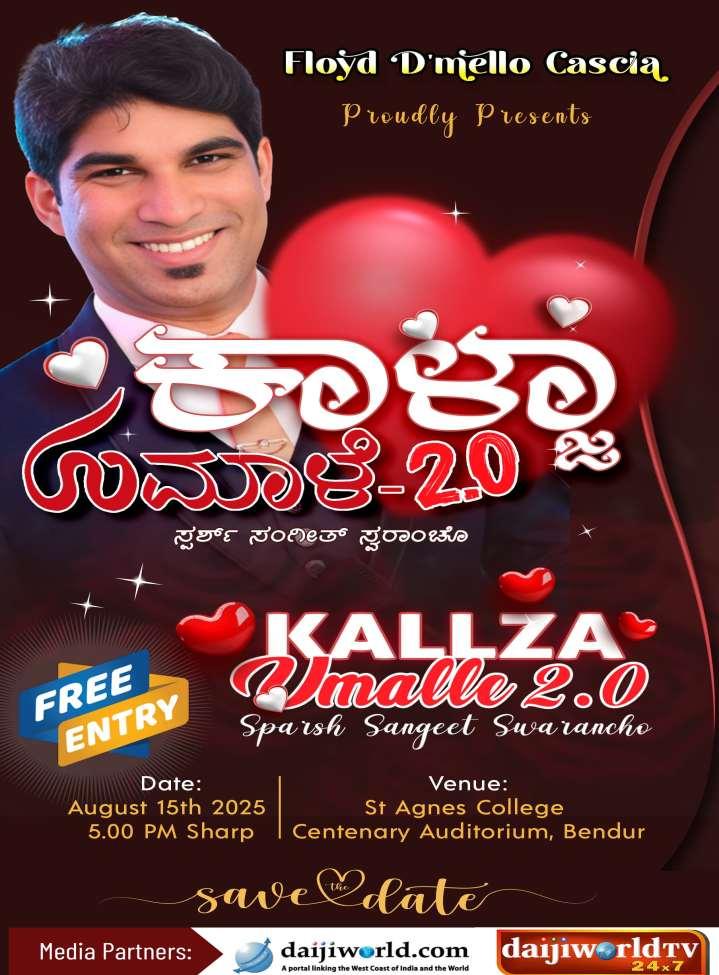
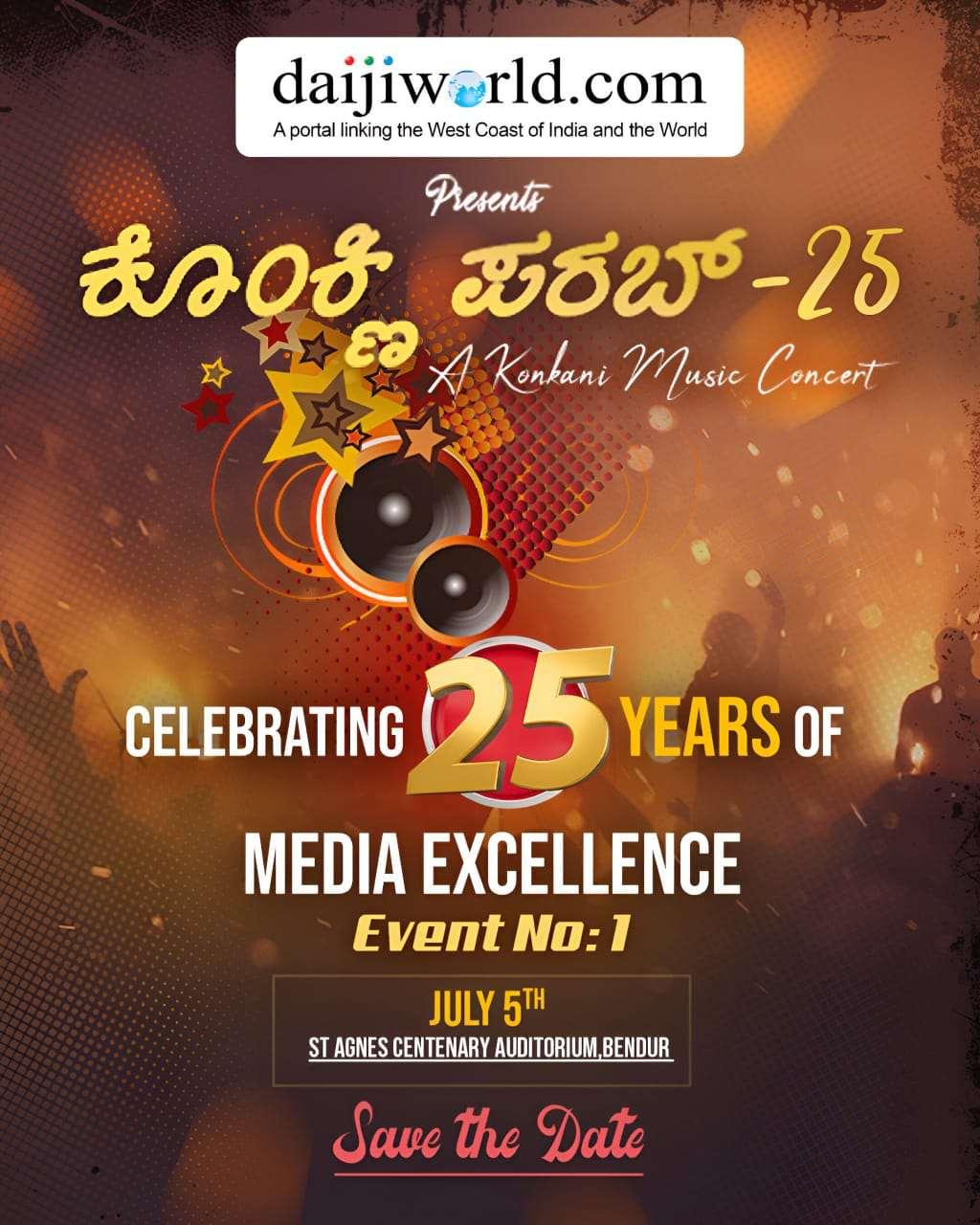
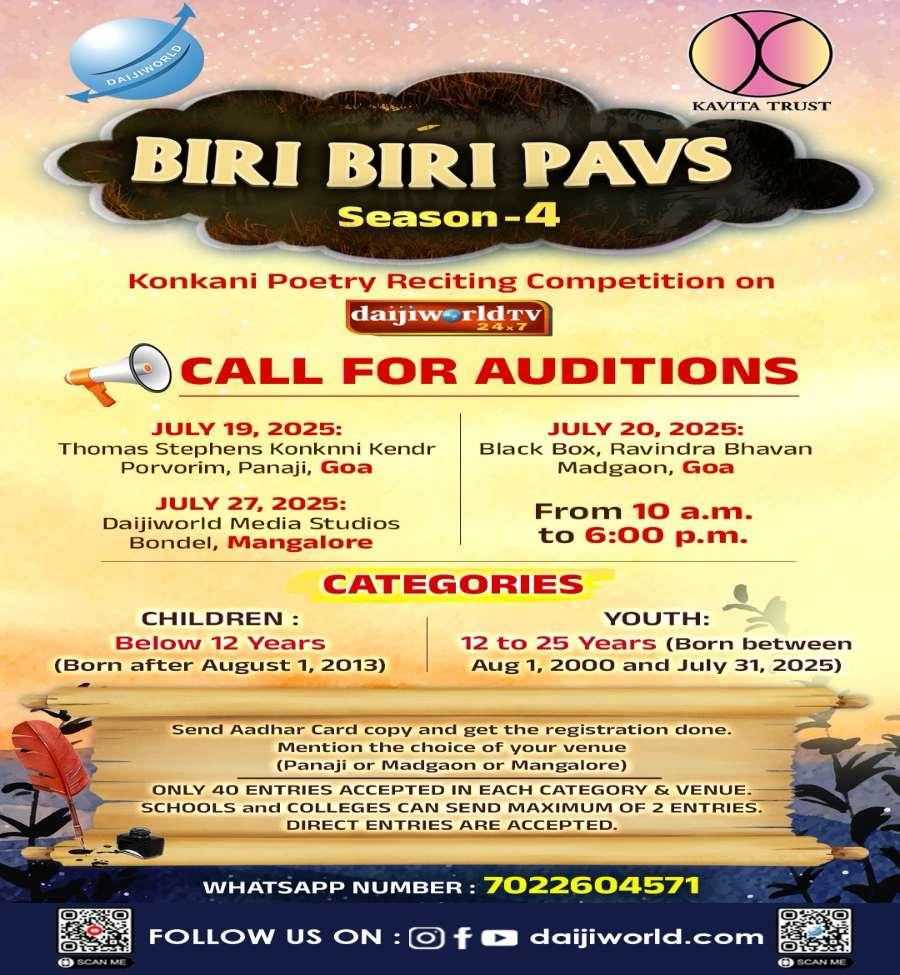
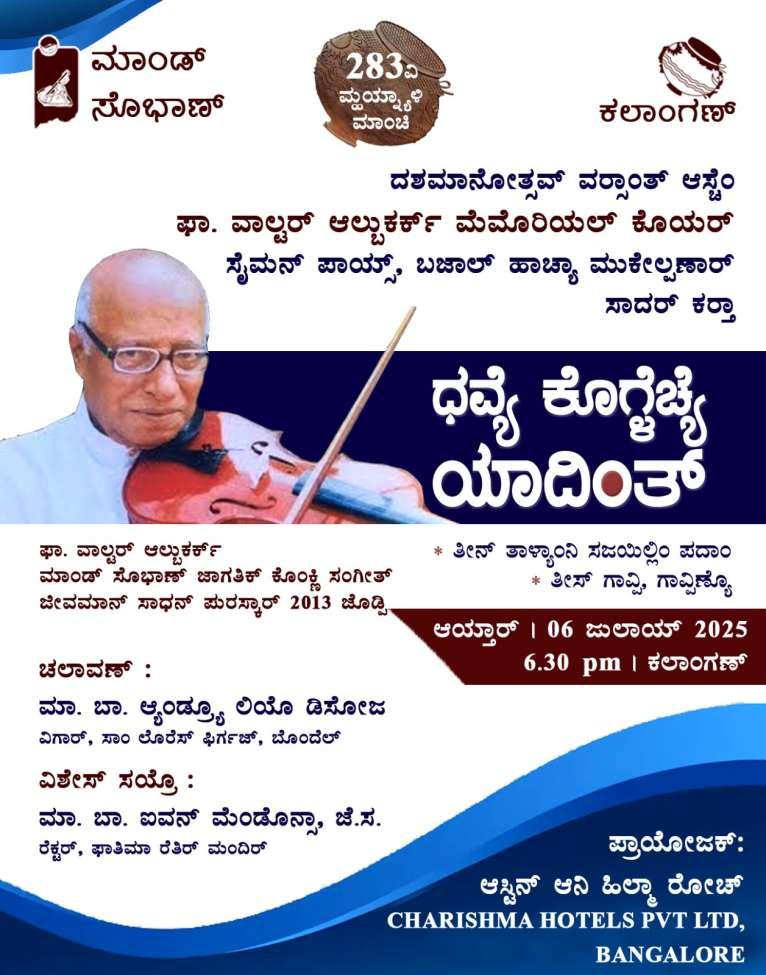
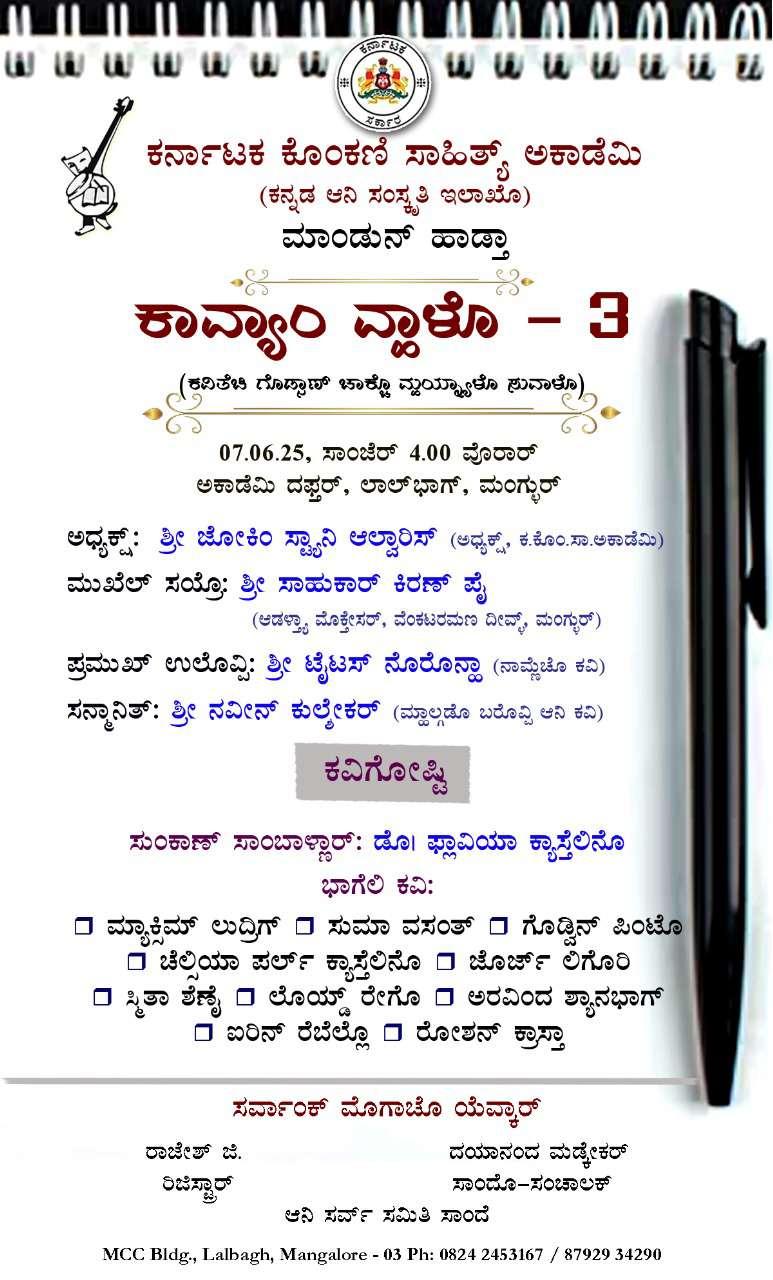
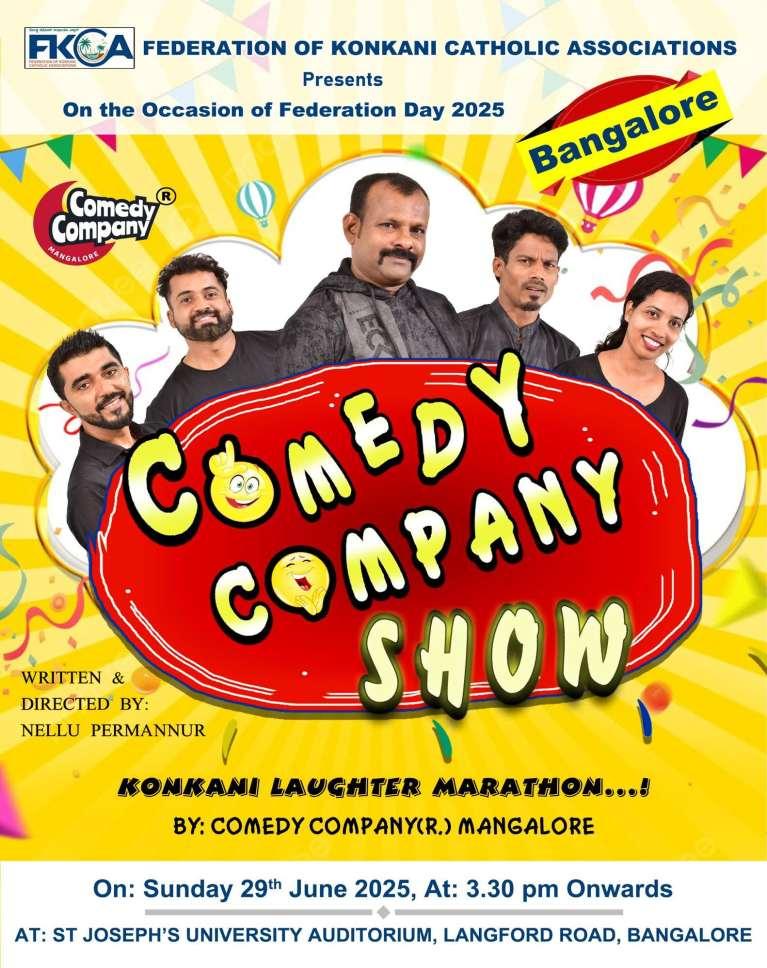
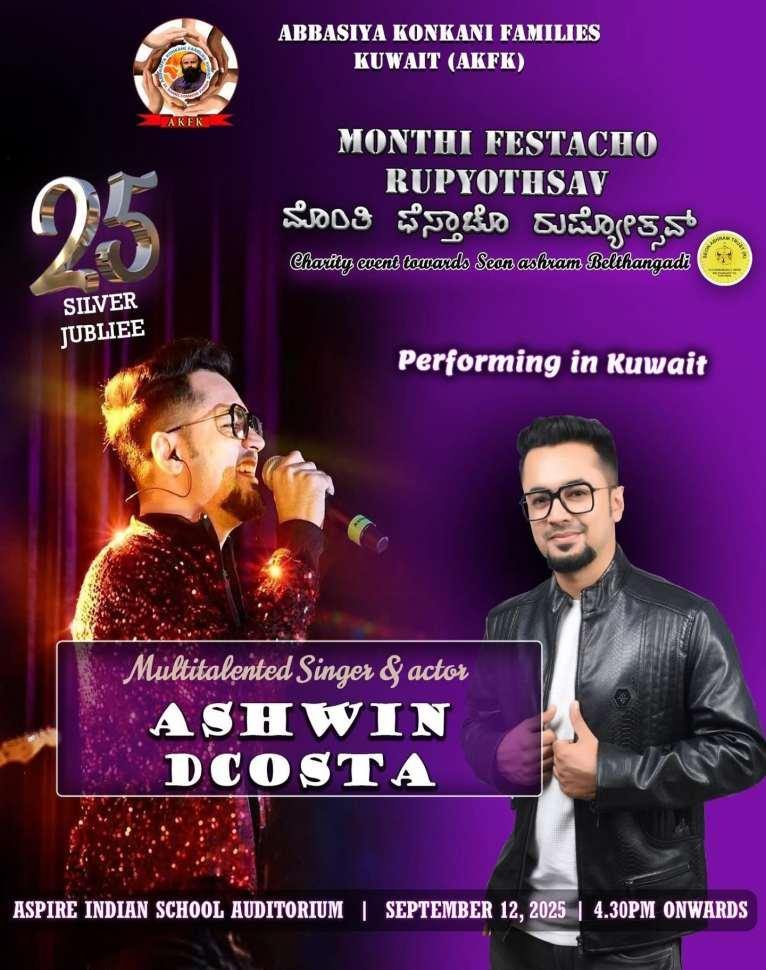

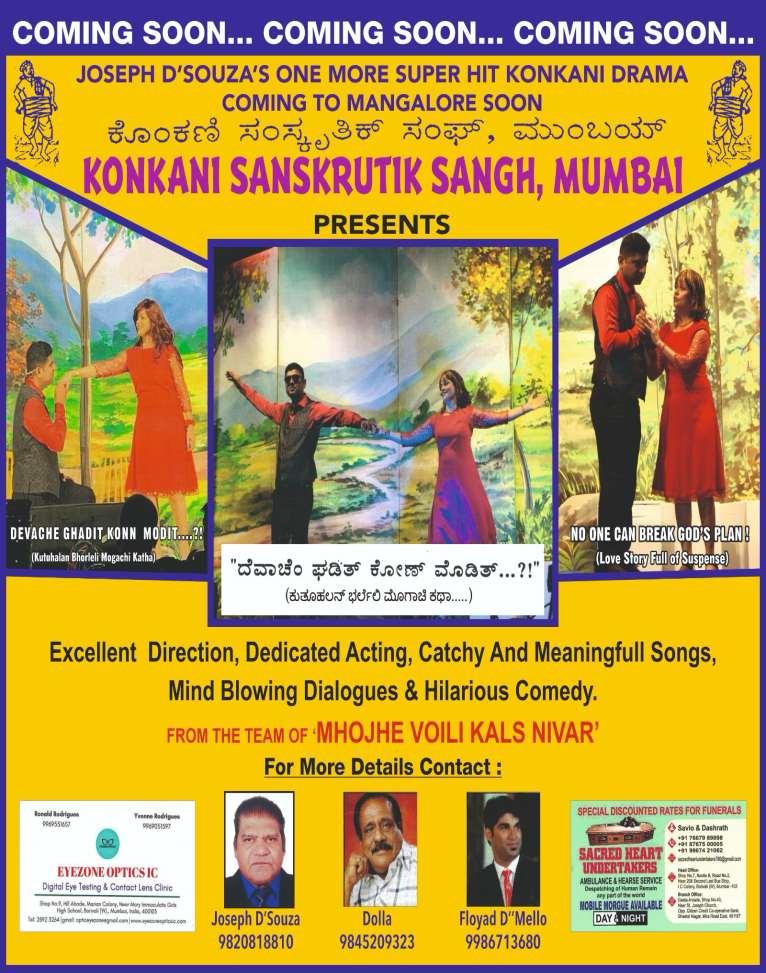















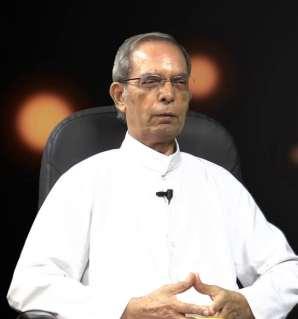





































































































30:15,19.































































































































































In the last two weeks VEEZ Weekly
Readers have had the privilege of making themselves better aware of two great Mangalore personas and their lives and works. We go on to the third here this week - an extraordinary priest, his life work and Autobiography - LateRev.Dr. John Fernandes' ‘Unbeaten Paths’. ThisAutobiographyhasthe
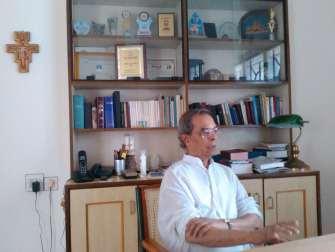
exclusive potential to provide in depthinsightsnotonlyintoFr.John Fernandes life and his exemplary scholarship in different planes in India and abroad. The contents of thebookareanadmirableblendof the "very local and very global”; giving a fantastic exposure of multi
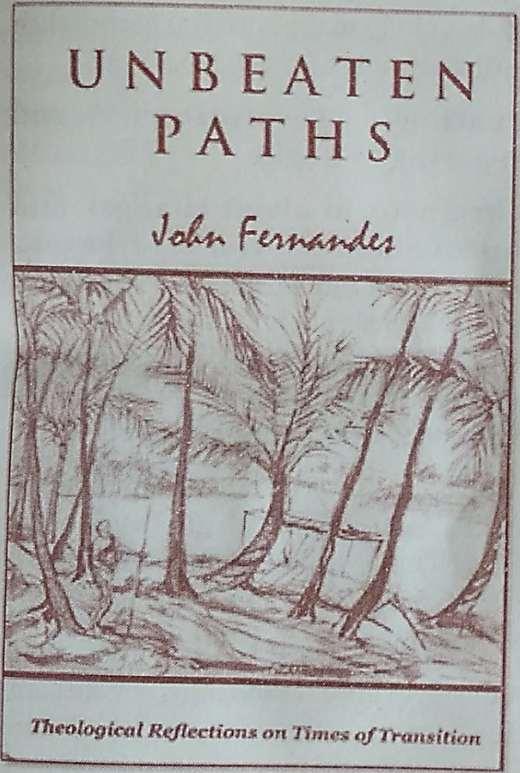
facets of knowledge of a lifetime that this intriguing priest testifies andexplains,alsointerwoven isthe Konkani Catholic culture of Kanara in a wider manner prevailing in 1940-1970. The gripping narration of the author, especially about the lifestyle and practices of those times,througha wide-anglelens,is
indeed a gift to the fortunate readers who can get hold of this lovely book and pursue its many pages. Pleasetakealookofabasic review that follows to wet the interest of the Mangalore Community and become aware of deeper matters and understanding through the writings of a widely travelled International Scholar and luminary Rev JOHN FERNANDES.
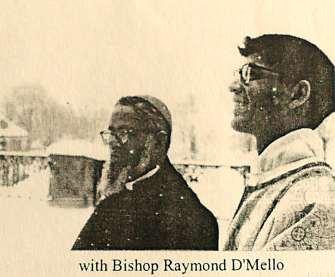
The book ‘Unbeaten Paths’ is far morethananautobiographyofLate Rev. Dr. John Fernandes, a senior priest of the diocese of Mangalore. This account of his life on untrodden paths is a wonderful treatise.Themorepreciousmatters arerarelybroughtintotheopenand are overpowered by many matters that attract humans. The contents ofthisbook,refreshinglyputacross
in a matter-of-fact captivating manner goes deep into certain aspectsofthispriest,scholar,social thinker and activist who has laboured in an extraordinarily sincere, truth-based principle, inspires deeply. It is a book that all serious seekers must read, no matter what faith or background. But,foramodernpersonitisamust read. For the casual reader it has a lot to entertain, educate and enlighten....be it history, culture, community, local and global geography and far more.
ThePrologue:Thisexclusivereview hereaimstomakeinterested,aware and motivated people in all situations to go through the book extraordinary. Points from the prologue by the author will throw light – 'He promises a lot, but he delivers in full measure, pressed down and overflowing'. Retiring at 75, his contacts and admirers specially from Germany made him realisethatitisforthegreatergood that Rev Dr. John Fernandes, must put down something of his life and this book was the result. The memoryofthepastbecomes‘living’ oraliveinthepresent. Recapturing
the past and living in the present, we prepare ourselves for the future. Every person is unique, every life is unique; it follows knowing about any life, does not happenbychancebutbydesignof the'One'above.Orientingthebook into 3 parts makes for rational absorption – Living on the periphery,CrossingtheBordersand Building bridges.
The three sections: 1. Living on the Periphery, 2. Crossing the Borders, 3. Building Bridges are serious revelationsthatstandaloneinmore ways than one. The subtitle ‘TheologicalReflectionsonTimesof Transition’is settostandthetestof time. The author said in an expression of hope that it might touchthesoulsofatleastafewwho may serve the world and humans wellintimesunseen.
As a schoolboy John's life with his mother and siblings is laid bare without reservations that touch the soul. He recollects the Indian freedom movement, August 15, `1947 and singing the well-known “Raghupathy Raghava Rajaram....” and such, that perhaps shapedhimtolookfairlyatallfaiths
inaperspectivethatdidnothavea bias and a freedom to be open to muchthatisconstructiveinlifeand work accounting for a “lived liberation theology”. Unfortunately, this review is kept brief to accommodate a wide scope of readersandforawiderinspiration.
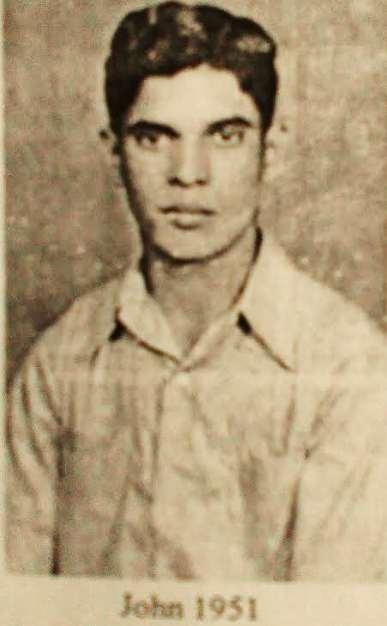
The Autobiography: M'luru scholarpriest'scaptivatingbookon 'times of transition', “Unbeaten Paths” is a one of its kind, a solid book with well visualised details by
Rev Dr. John Fernandes (Born: March7,1936/PassedawayJuly3, 2021). Beyond the description of dates and events, the book is an illustration of the theological transition that the author has trod during his life and ministry, the paths less trodden. Emerging new trends in theology are avidly absorbed by the author. Consequently, as Francis D’Sa SJ writes in the Foreword, Fr. John reaches out to larger “concerns of crossing borders and building bridgesbetweencommunities”and beyond; between inter-religious communitiesandstillmorebeyond that concerned with damage done to Mother Earth”. Dr. John Fernandes encapsulates the 4 Es in his life positively - Enthusiasm, Energy,ExcitementandEmpathyas necessary in different scenarios.
If the diocesan priest is open in his on-going search and creative involvement, every position he holds could be approached with a liberated perspective. Rev John Fernandes,evenastheHeadofthe 'Chair in Christianity' at the Universityof Mangalore,integrated academic inquiry with contextual
pastoral praxis. He envisaged the following fourfold aspects for the Chair in Christianity, which formed the solid foundation for his priestly ministry: 1. multi-religious context inwhichwemuststriveforreligious harmony./2.Multi-culturalcontext in which we must work for cultural integration./3.Contextofanunjust and violent society in which we strivetowardsjusticeandpeace./4. Context of damaged ecology in which we work for the integrity of creation.
“Unbeatenpaths”isalotmorethan wordstolook,readandreflect.The cover and the beginning of each chapterhasartisticillustrationsfrom the internationally acclaimed artist, Sri Jyoti Sahi. His drawings “depict not only the landscape but feel the spiritofthe place”whichleadsusto the inner spirit of the “inscape”. In theartisticworksJyotiSahiincisively depictmanyrareanduniquethings on the cover and inside the book which capture the ethos of some thingsthatarecaptiveinthepages. The book contains many pictures which need attention connecting the narrations. Reading “Unbeaten Paths”,wouldenableyoutoliveon
the periphery, to cross the borders and to build bridges!
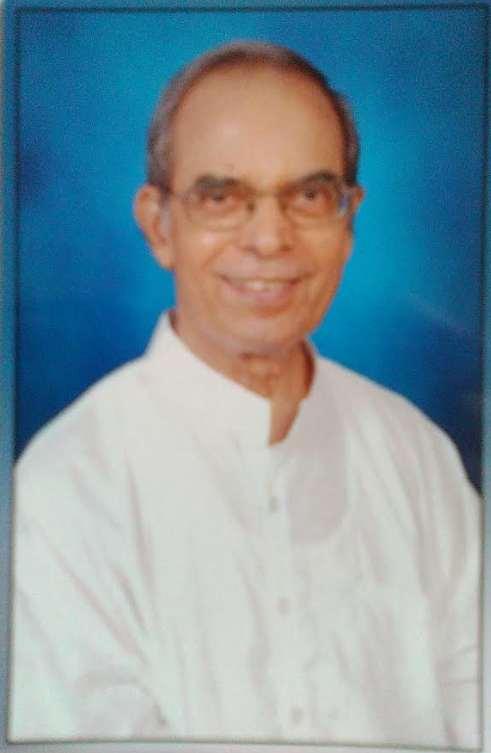
Life away from Mangalore: Young John Fernandes first crossed the bridge fromUdayavartoKudla, StJoseph’s Seminary, Mangalore to Papal Seminary Poona (now Pune), in 1955-1960; hewasintoPhilosophy and Theology there, the first broadening of his knowledge base. All the nuances of the changes he made are explained in most captivating detail. The Second
Ecumenical Council called by Pope JohnXXIIIin1959,hadabearingon John’s voyages too. He was a singular one to get selected for higher study at 'Innsbruck Canisianum' College and University in Austria. His priestly formation too was on going here. Fr. John’s ordination was perhaps a rare one foritwasinaparishchurch,thatwas considered his ‘home’, in the German town, Trier-Euren, St Helena, where in the University Fr. John did advanced study and research. onMarch30,1963,bythe then Bishop of Mangalore Rt Rev RaymondD'Mello.
After finishing studies and formalities, he returned to Mangalore in November 1963. The ordination, its aftermath and its pastoral work in Mangalore for 3 years is very interestingly put forth in the book, page after page. Rev. John’s interest to delve into Ecumenical and inter religious movementsand inthe processfind meaninginIndianorientedliturgies took him well into the study of the 16 Hindu rituals ('Upanayana', in particular) comparative to the 7 churchsacraments.Heexplainsthat
theword‘Samskara’hascloseroots with the words ‘sacramentum /sacrament’. In the meantime, the then Bishop of Mangalore Rt. Rev. Basil D’Souza wanted him to study and take on the task of furthering theaimsofVaticanIIinthediocese. Thediversityofhisoutlookindepth is very palpable, if Mangalore was his home, Innsbruck, Austria and Germany were no less to him amongotherplaces.Thereisavast and deep exposure involved in the “context of a multi religious, multicultural society and in an unjust, ecologically precarious world”awitnesstochangingtimes
and perspectives, working towards thebook'sthree-waysubtitles. May the memory of an extraordinary priest of Mangalore find rest and celebration in HIS Almighty GOD and rest in JOY. Note:UnbeatenPaths,ISPCK,Delhi, 2016. 978 81 8465 5575. pp. xvii + 423. (Probably will be found in Libraries, institutions, Diocese...)
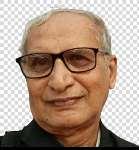
-By: IvanSaldanha-Shet.
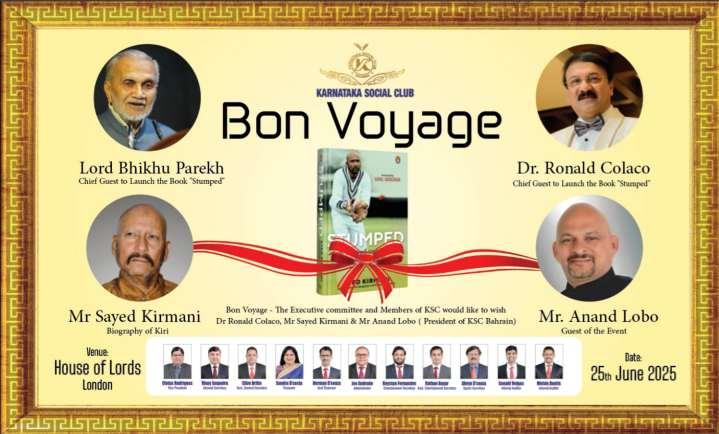

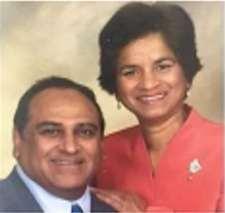
PhilomenaLawrence
GilbertA.Lawrence
Luís Vaz de Camões(1524-80) and Winston Spencer Churchill (WSC 1874-1965).
(FromLastweek)
Youth: WSC’sadolescencehasbeen described as “pugnacious and rebellious... never adapted to discipline. His reports through his schooldays were almost uniformly bad.” It took three attempts before hesucceededingainingadmittance totheRoyalAcademyatSandhurst, a dismal record, which reflects his below-averageperformanceinhigh school.On August 9, 1893, his father rebuked him rather strongly about “barely making it into the
military, by less than creditable means.” He was accepted into the less competitive but more expensive Cavalry division, which increased the financial burden on his hard-up parents. But the late bloomer fared well in military school, given his penchant for martialhistoryandremarkableskills at cavalry maneuvers. Camões’ adolescent years were marked by a Bohemianlifestyle visitingtaverns and love dens. He exhibited a greaterpropensitytocrosstheline, which landed him in prisonin
Portugal, and he served his time as acivilservantintheeastinstead. It would therefore appearthat in his youth,Camõeswas even more notoriousthanWSC.
The personalities of Camões and WSC could be described as “risktakers,” and their behavior as “confrontational.” Despite their aristocratic connections, their upbringing was frugal, probably because both were young when their fathers died. Perhaps that explains why they pursued careers earlyinlife.Bothweregroomedfor alifeofpowerandprivilege,butas young adults, they chose colorful and gaudy notoriety, even displaying flamboyant impatience bordering on recklessness.It was a period when going east was deemed a reckless choice, but it guaranteed a respectable job with pay, the potential to pay off debts, and the opportunity to rise in the ranks. Overseas jobs also relieved family members and teachers of being responsible for the recruits. Aslatebloomers,CamoesandWSC underrated themselves and were underestimated by others; only much later would their talents be revealed. Yet, in the colony, they
weredisciplinedenoughtobe selftaught, and their literary flair flourished with friends. Albeit men of charm, they also had considerableentrepreneurialtalents and did not set any ceiling on their ambitions.
WSC and his father shared similar talents for aristocratic eloquence andliteraryflair,whichtheyusedto contributearticlestonewspapersas awayof layingthegroundworkfor their path to elected office. Their views were based more on beliefs and emotions than on facts. WSC mastered the art of writing docudramas, which served as his stock-in-trade for future writings and political speeches. They were menofenergyandambitionwithno time to waste. They believed, like modern-day marketing gurus, that there is no such thing as “bad publicity,” as it provided fame, money, and real-time exposure to thepublic. Thepotentialformaking money (immediate gain) pushed themtotakegreaterrisksandmake outlandish claims. Ironically, they described their antagonists as “prigs,”butthetermbestdescribed the duo themselves. WSC’s grandfather, who surely knew him
well, used derogatory comments about the Churchill character when hestated, “...greatfaultswerewant of self-control in his language, temper, and demeanor, and an imperiousness of disposition to thoseunderhim.”Bothwere always opinionated, often brash, and sought the spotlight. A stark difference between WSC and his father was one of longevity. Randolph Churchill died at the age of45,andhissonlivedtobe91.The elder Churchill died five years beforeWSCwaselectedtoserveas anMP(thoughnotfromhisfather’s seat) and did not have the good fortune to see his son uphold that familytradition.
These two men exemplified the winning combination of imperial
administrationwiththepolemicsof crass politics. It was a well-known fact that Grade One politicians got their entire parliamentary speeches publishedinlocalnewspapers,while those given by lower-rated politicians might receive just a half or one-column coverage. So the pressurewasontobeGradeOne.It is noteworthy that their peers described the personalities of the two Churchills in similar terms quite untamed … characteristics of extreme youth …vulgar … relished the tendency to denigrate colleagues with flamboyant presentations … devoid of any inhibition at making sweeping commentsaboutpeopleandissues. Bothconsumption.


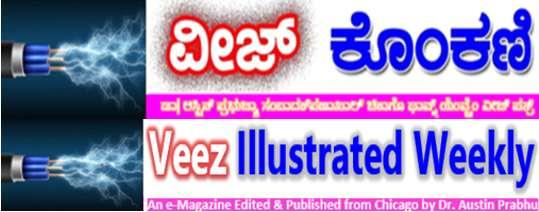
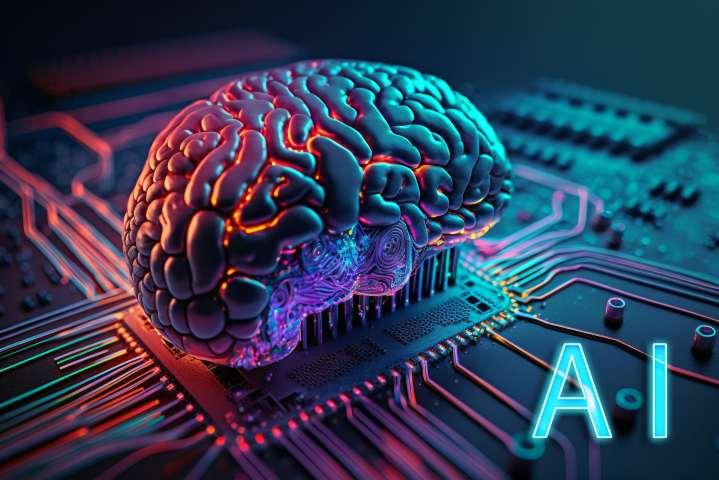

Introduction
On 28 January 2025 the Dicastery for the Doctrine of the Faith and DicasteryforCultureandEducation jointly published a Note on the
Relationship Between Artificial Intelligence and Huma Intelligence. The 33-page Document with 117 Numbers or Paragraphs and 215 footnotes beautifully and convincingly explains the relationship between Artificial Intelligence (AI) and Human Intelligence and calls us to “reflect on the current challenges and
opportunities posed by scientific and technological advancements, particularly by the recent development of Artificial Intelligence(AI)”.(No.1)
The Vatican Note“addresses the anthropological and ethical challengesraisedbyAI–issuesthat areparticularlysignificant,asoneof the goals of this technology is to imitate the human intelligence that designed it…....Moreover, this technologyisdesignedtolearnand makecertainchoicesautonomously, adapting to new situations and providingsolutionsnotforeseenby its programmers, and thus, it raises fundamental questions about ethical responsibility and human safety,withbroaderimplicationsfor societyasawhole”.(No.3)
There is no doubt that AI marks a new significant phase in the development of technology which Pope Franics described as“epochal change.” The impact of AI is “felt globally and in a wide range of areas, including interpersonal relationships, education, work, art, healthcare, law, warfare, and internationalrelations.”(No.4)
The present Document “begins by distinguishingbetweenconceptsof
intelligence in AI and in human intelligence. It then explores the Christian understanding of human intelligence, providing a framework rootedintheChurch’sphilosophical andtheologicaltradition.Finally,the document offers guidelines to ensure that the development and useofAIupholdhumandignityand promote the integral development of the human person and society.” (No.6)
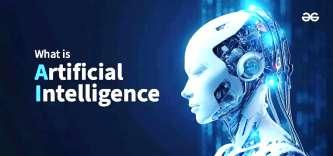
The American computer scientist John McCarthy defined AI as “that of making a machine behave in ways that would be called intelligent if a human were so behaving.” In 1956McCarthy organized a workshop at Dartmouth University and launched “a research program focused on designing machines capable of performing tasks typicallyassociatedwiththehuman intellect and intelligent behaviour……Sincethen,AIresearch hasadvancedrapidly,leadingtothe development of complex systems
capable of performing highly sophisticatedtasks.”(No.7-8)
As a result of these rapid advancements, “many tasks once managedexclusivelybyhumansare nowentrustedtoAI.Thesesystems can augment or even supersede whathumansareabletodoinmany fields, particularly in specialized areas such as data analysis, image recognition,andmedicaldiagnosis.” (No.9). However, AI’s advanced features give it sophisticated abilities toperformtasks , but not theabilitytothink.(No.12)
The Document ANTIQUA ET NOVA then goes on to describe and explain Intelligence in the Philosophical and Theological Tradition. Due to limited space, in thisarticleIwishtoskipthissection and move on to the next section which provides us some ethical guidelinesforthedevelopmentand useofAI.
The Role of Ethicsin Guiding the Development and Use of AI: The Note reminds us that “technoscientific activity is not neutral in characterbutisahumanendeavour that engages the humanistic and cultural dimensions of human creativity” (No.36). “At the same
time,allscientificandtechnological achievements are, ultimately, gifts fromGod.Therefore,humanbeings must always use their abilities in view of the higher purpose for which God has granted them. (No.37)

The Document acknowledges that technology has remedied countless evils which used to harm and limit humanbeings,forwhichweshould be grateful and rejoice, but at the same time not all technological advancements in themselves represent genuine human progress.The Church is particularly opposed to those applications that threaten the sanctity of life or the dignity of the human person. (cf.No.38)
Concerns about the ethical implications of technological developments are shared not only within the church but also among manyscientists, technologists, and professional associations. It is
essential therefore to emphasize “the importance of moral responsibility grounded in the dignityandvocationofthehuman person. This guiding principle also applies to questions concerning AI.(No.39)
The Note further clarifies that “Between a machine and a human being,onlythelatteristrulyamoral agent a subject of moral responsibility who exercises freedominhisorherdecisionsand accepts their consequences…. Likewise, between a machine and a human, only the human can be sufficientlyself-awaretothepointof listening and following the voice of conscience, discerning with prudence, and seeking the good that is possible in every situation.” (No.39)
We are reminded in the Document that “like any product of human creativity,AIcanbedirectedtoward positive or negative ends”.While it can promote well-being of individuals and communities, shadow of evil also looms here.(Cf. No.40).Weneedtoalsoremember herethat“itisnotonlytheendsthat areethicallysignificantbutalsothe means employed to achieve
them………Technological products reflect the worldview of their developers, owners, users, and regulators…….some technological developments could also reinforce relationships and power dynamics that are inconsistent with a proper understandingofthehumanperson andsociety”.(No.41)
Therefore, respect for human dignity and promotion of common good would be the key criterion in evaluating emerging technologies. They will prove ethically sound to the extent that they help respect that dignity and increase its expression at every level of human life.(cf.No.42)
To help discernment and decision makinginAIoranytechnology,the Notegivesusthisgeneralprinciple: “The commitment to ensuring thatAI always supports and promotesthesupremevalueofthe dignityofeveryhumanbeingand the fullness of the human vocationserves as a criterion of discernmentfordevelopers,owners, operators, and regulators of AI, as well as to its users. It remains valid for every application of the technologyateverylevelofitsuse”. (No.43)
Ultimately the moral responsibility and accountability rests with the human person, not machines; personal agents, not artificial ones. Thus, while responsibility for the ethicaluseofAIsystemsstartswith those who develop, produce, manage,andoverseesuchsystems, it is also shared by those who use them……. Therefore, insofar as AI can assist humans in making decisions, the algorithms that govern it should be trustworthy, secure, robust enough to handle inconsistencies, and transparent in their operation to mitigate biases and unintended side effects…………Moreover,thoseusing AIshouldbecarefulnottobecome overly dependent on it for their decision-making……”(No.46).
The Notethen goes on to take up some specific questions. While not claiming to be exhaustive it deals briefly with several specific areas whereAIisusedfrequentlyandcan haveseriousethicalimplications. Among the specific questions dealt withare:i)AIandSociety(Nos.5055); ii) AI and Human Relationships (Nos. 56-63); iii) AI, the Economy, and Labor (Nos. 64-70); iv) AI and Healthcare (Nos. 71-76); v) AI and
Education (Nos. 77-84); vi) AI, Misinformation, Deepfakes, and Abuse (Nos. 85-89); vii) AI, Privacy, andSurveillance(Nos.90-94);viii)AI andtheProtectionofOurCommon Home (Nos. 95-97); ix) AI and Warfare (Nos. 98 – 103); and x) AI and OurRelationship with God (Nos.104-107).
While each of these specific areas where AI is already being used and will be used increasingly, is important, however due to lack of spaceinthepresentarticleIchoose to deal with only two specific areas which I consider are crucial and delicate where decision-making is more difficult, namely healthcare andwarfare.

AI and Healthcare: The Vatican Note reminds the healthcare professionalsthat“Asparticipantsin God’s healing work, healthcare professionalshavethevocationand responsibility to be “guardians and servants of human life……… the healthcare profession carries an
“intrinsic and undeniable ethical dimension,” recognized by the Hippocratic Oath, which obliges physicians and healthcare professionalstocommitthemselves to having “absolute respect for human life and its sacredness.” (No.71)
No doubt AI seems to hold immense potential in the medical field, such as assisting the diagnostic work, facilitating relationships between patients and medical staff, offering new treatments, and expanding access to quality care also for those who areisolatedormarginalizedetc.(cf. No.72).
The Note reminds us that “Responsibilityforthewell-beingof patients and the decisions that touch upon their lives are at the heart of the healthcare profession……... As a result, decisions regarding patient treatment and the weight of responsibility they entail must always remain with the human person and should never be delegatedtoAI”(No.74)
Furthermore,“AI tools in healthcare are exposed to forms of bias and discrimination, where systemic errorscaneasilymultiply,producing not only injustices in individual cases but also, due to the domino effect, real forms of social inequality……………To prevent such inequities,equitableframeworksare neededtoensurethattheuseofAI in healthcare does not worsen existing healthcare inequalities but rather serves the common good”. (Nos.75-76)
AIandWarfare:Peaceisnotmerely absence of war. The Church’s Magisteriumhasalwaystaughtthat “Peaceistheworkofjusticeandthe effect of charity and cannot be
However, if AI is used not to enhance but to replace the relationship between patients and healthcare providers leaving patients to interact with a machine rather than a human being it would reduce a crucially important human relational structure to a centralized, impersonal, and unequal framework……. such applications of AI would risk worsening the loneliness that often accompanies illness, especially in the context of a culture where persons are no longer seen as a paramountvaluetobecaredforand respected.”(No.73)

achieved through force alone; instead, it must be principally built through patient diplomacy, the active promotion of justice, solidarity, integral human development, and respect for the dignityofallpeople”.(No.98)
The Vatican Note on AI affirms strongly that “While AI’s analytical abilities could help nations seek peace and ensure security, the ‘weaponization of Artificial Intelligence’ can also be highly problematic……... the ease with which autonomous weapons make war more viable militates against the principle of war as a last resort in legitimate selfdefence,potentially increasing the instrumentsofwarwellbeyondthe scope of human oversight and precipitating a destabilizing arms race, with catastrophic consequences for human rights”. (No.99)
Itfurtherwarns:“Inparticular,Lethal
Autonomous Weapon Systems, which can identify and striking targets without direct human intervention, are a cause for grave ethical concern because they lack the unique human capacity for moral judgment and ethical decision-making. For this reason, PopeFrancishasurgentlycalledfor a reconsideration of the developmentoftheseweaponsand a prohibition on their use……..No machineshouldeverchoosetotake thelifeofahumanbeing.”(No.100).
Furthermore, “Some AI researchers have expressed concerns that such technology poses an “existential risk” by having the potential to act in ways that could threaten the survivalofentireregionsorevenof humanity itself. This danger demands serious attention……………individuals with malicious intentions might misuse this technology.Like any tool, AI is an extension of human power, and while its future capabilities are unpredictable, humanity’s past actions provide clear warnings. The atrocities committed throughout history are enough to raise deep concernsaboutthepotentialabuses ofAI”.(Nos.101-102)
Saint John Paul II observed that humanity now has instruments of unprecedented power: we can turn thisworldintoagardenorreduceit to a pile of rubble. Therefore, the developmentanddeploymentofAI in armaments should be subject to thehighestlevelsofethicalscrutiny, governed by a concern for human dignity and the sanctity of life. (No.103)
Conclusion: All technology including AI must be at the service of humanity. It must promote commongoodwhilerespectingthe dignity and sacredness of human life. Therefore, individual users, families, civil society, corporations, institutions, governments and international organizations should workattheirproperlevelstoensure that AI is used for the good of all. That is a huge responsibility. Only time will tell how we handled this responsibility.
I have presented above the main contentof AntiquaEtNova briefly. IhaveallowedtheNotetospeakfor itself by quoting it profusely. The reader would profit much more by reading the full document and reflecting on the moral responsibility vis-à-vis AI that rests onall ofus. Itis imperativethat we donotallowartificialintelligenceto replacehumanintelligence.
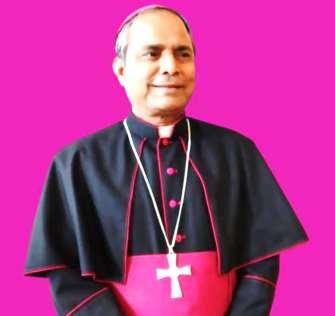



politicians were powerful orators, given to pomposity, and the ambition to carry on the proud family tradition of being elected a MemberofParliamentortoaneven higher position. Their copious energy was evident even under unfavorable situations. Undoubtedly, liberal partaking of liberation helped reduce their inhibitions, as well as relieving the burden and boredom of political life. Both actively sought and
achieved personal fame. While often using the gift of the gab for humor, their biting remarks were effectively targeted at political opponents, or when they chose to be cynical. For WSC, the modus operandi worked. He became anMPattheage of26,servedasa ministerinseveralcabinets,andwas PrimeMinister.
(Tobecontinued)



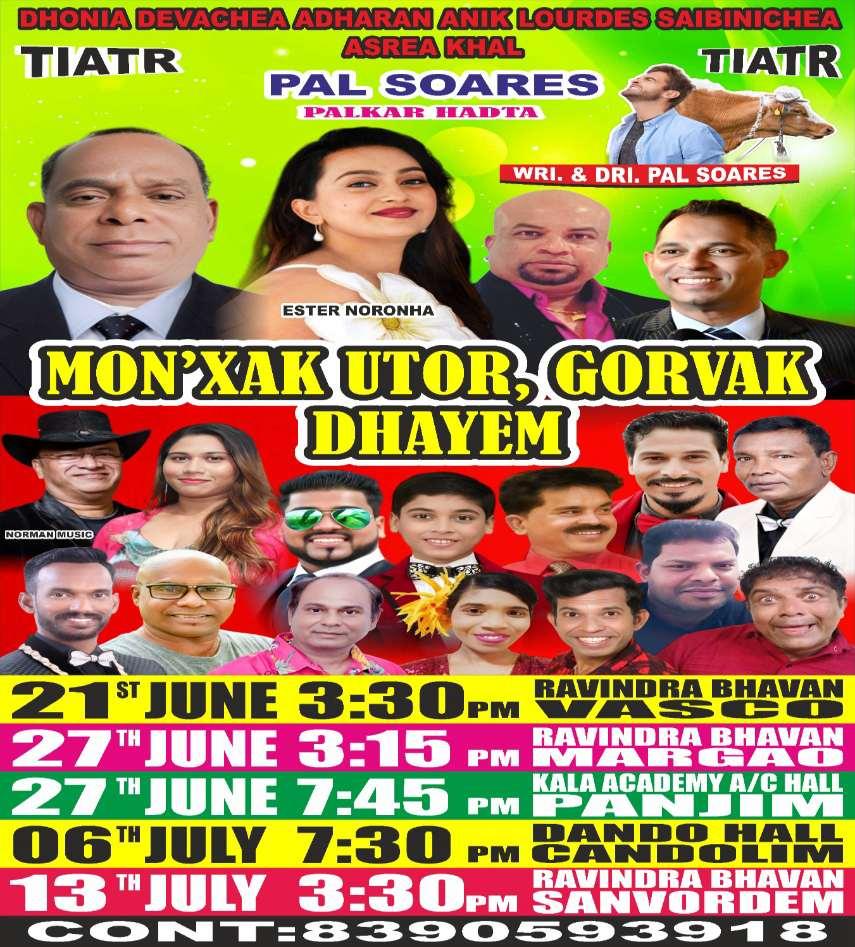


- By Molly Pinto.

When your world seems to close in on you from every side
When the wind of change beckons without a breeze
When your breath is caught somewhere in your chest, choking you
When letting go is the best thing you can do, for yourself
Let go of troubled soul, let go and breath again
There's nothing more crippling than holding on
To a situation or place that just doesn't do, what it should
Your ability to break free will enrich your very being
Fear of the unknown often shackles one, hands and feet
A bird can only fly when it releases its grip from the security of the cliff
The exhilaration of this freedom never understood before
Defines liberty to soar far and wide, and view a world unbeknownst before
Let go of troubled soul, let go and learn to soar above the clouds
Find a goal if you have not any, and taste the winds of change
Never again to look back, with a world of opportunities inviting
And a life of honour for choosing yourself, over a life of servitude
Martyrdom is a noble cause, in a worthy circumstance
Self-limitation is total waste, of the divinity that is you
You are a treasure trove of abilities waiting to be unlocked
Wake up and embrace this journey, you were chosen to traverse
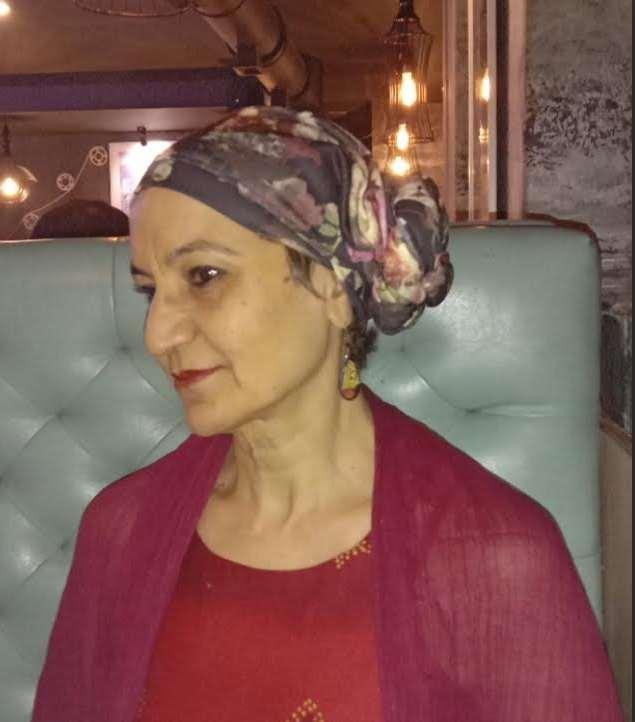

- By: Molly Pinto.

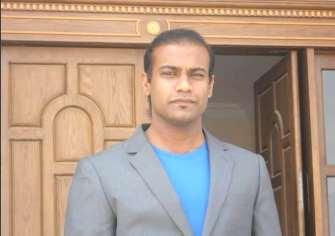
The retrieved CCTV footage was shown to SP Ramalingam. His eyebrows shot up in surprise as he immediately instructed his team to trackdownGaurav.Atthesametime, he wanted to confirm the identity of the other person in the footage.
SP Ramalingam said, "Who is that with him? Wait, wait… roll it back. What the heck is he handing him? Get a screenshot of that guy, show it to the college staff, and bring both in immediately!"
OneteamheadedtoGaurav’shouse, while another rushed to the college. Theyshowedthepicturearound,and to their surprise, the person in question was Vishal.
A constable called in, "Sir, it’s the minister’s son, Vishal."
SP Ramalingam responded, "Okay, check for him at his house. I’m sending backup. Meanwhile, I’ll report this to the Commissioner."
Vishal was taken into custody, and the police began interrogating Gaurav. Sweating, Gaurav finally broke down and revealed everything.
"Harini and I grew up together. I have liked her since our school days. Being from a poor family, she depended on us. We provided her father with a job and covered her education expenses. But lately, Harini has been avoiding me, and that made me furious. I threatened her—if she didn’t agree to be with me, I would get her father fired from his job at our estate… because I wanted to marry her. I couldn’t tolerate the thought of her becoming someone else’s partner."
"Yes… on Holi, I was walking toward thecollegewhenVishalandhisteam
stopped me. Vishal told me that Saurav and Harini had been seen hugging and kissing passionately a fewdaysbackandthattheywereina relationship. Hearing this, I was furious. Vishal calmed me down and offered me juice. After drinking it, I felt provoked. I wanted to confront Saurav. Then,Vishal placed a knife in my hand.
"I went searching for Harini and saw her on the 4th floor. I angrily questionedheraboutSaurav,butshe tried to calm me down and asked me to talk. Instead, I screamed at her, slapped her, and, in a fit of rage, pushed her. Her head hit the wall.
"As I was about to leave, still holding the knife, Harini grabbed me from behind. I was already angry, and I felt intoxicated. I pushed her away with all my strength. My bad luck… she lost her balance, hit the partition wall, and fell from the 4th floor to the ground."
Vishal was tied up and interrogated.
"Sir, I only told Gaurav what my men had seen a few days back. Gaurav was deeply attached to Harini, and I didn’twant himtosufferlater.Before heleft,Iplacedaknifein hishandfor self-protection, in case Saurav tried
to harm him. That was all, sir—I did it for Gaurav’s sake!"
When asked about the alcoholmixeddrink,Vishalreplied,"Sir,Ionly wanted to calm Gaurav down becausethenewsmightshockhim.I asked my boys to give him a cool drink. I had no idea if they poured it into the same glass they used for alcohol."
As usual, Vishal was the troublemakerwhohadsettheevents inmotion.Thoughhewantedtoharm Saurav, the tragic outcome was not what he had intended. Still, he ensured he was never directly implicated.
During the investigation, Saurav was questioned.
"What about the incident where you and Harini were seen hugging and kissing in the corridors?"
Saurav took a deep breath and replied,"IwasattractedtoHariniand wanted to meet her parents. Just to surprise her, I went to Coorg and met them separately. I also deposited an amount in their account that generated enough interest for their food and medicine. Attheirrequest, I left my visiting card with my father’s
address and my contact number.
"Later,whenHariniwasonleave,she noticed my visiting card at her home. After inquiring with her parents, she was surprised. When she came back, she met me, playfully pinched me, hit me, slapped me, and then hugged me. In that moment, she kissed me. I thought no one had noticed… but apparently, these guys did."
Six Months Later…
Gaurav got bail and was able to write and pass his exams. Vishal managed to escape severe punishment and completed his exams.
Saurav and Ankitha sat near thelake, theirfacesdowncastastheyrealized their college journey had ended, and Harini’s memory would haunt them. But now, they had to move on.
Ankitha hugged Saurav, pinched his cheek, then gently placed her fingers on his throat.
"Make me a promise," she said. "You’ll tell me where you get your next admission. And once we finish
our master’s, no delays for our marriage."
Saurav laughed, held her hand, and said, "It’s a promise."
Ankitha happily got into her car and
drove away. In her side mirror, Saurav’s image grew smaller and smaller until it finally faded away.
Story by - S.P.M TheEnd
June17,2025,|Mangaluru
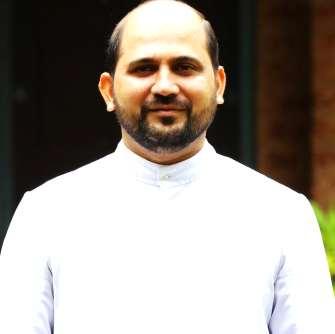
The Diocese of Mangalore has officially appointed Fr Naveen Pinto as the new Coordinator for Pastoral Commissions, marking a strategic leadership shift in diocesan pastoral governance. The appointment comes into effect today.
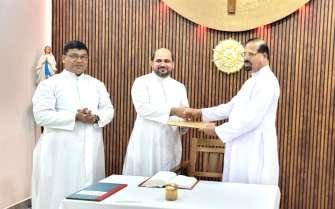
Fr Naveen currently serves as the JudicialVicarattheBishop’sHouse (since 2023). He was also Administrator of St Joseph Seminary, Jeppu from 2022 to 2025 and continues to serve as a visitingfaculty attheSeminary.He willnowadditionallycoordinateand streamline the activities of all diocesan-level pastoral commissions. He resides at AngeloreParish.
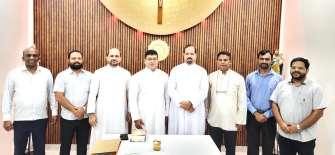
The pastoral commissions are integral to the mission of the diocese, encompassing areas such as catechetics, youth apostolate, social concerns, interreligious dialogue, liturgy, and family life, amongothers.
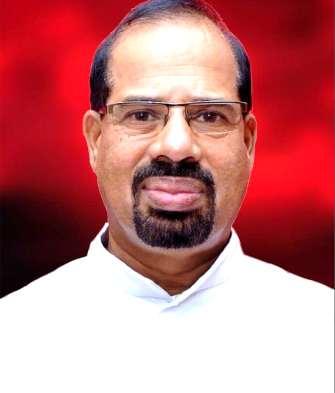
He succeeds Fr Faustine Lucas Lobo, who served as Diocesan Coordinator since May 29, 2023, while also serving as Parish Priest ofKinnigoli andlaterappointedas
the Director-designate of Father Muller Charitable Institutions, Kankanady. He has now officially taken charge as the Director of Father Muller Charitable Institutions,amajorhealthcareand educationalnetworkinthediocese.
Fr Faustine, who previously served as the National Director of the Pontifical Mission Organizations, brought a wealth of experience in mission coordination and pastoral planning. During his tenure, he strengthened synodal structures, promoted collaboration among commissions, and streamlined their functioning at the parish, deanery, anddiocesanlevels.Notably,healso published the second edition of theDiocesanPastoralPlan(2024–2026), providing strategic direction for pastoral initiatives across the diocese.
Reported by: Fr Anil Ivan Fernandes Journalist & Media Reporter DioceseofMangalore

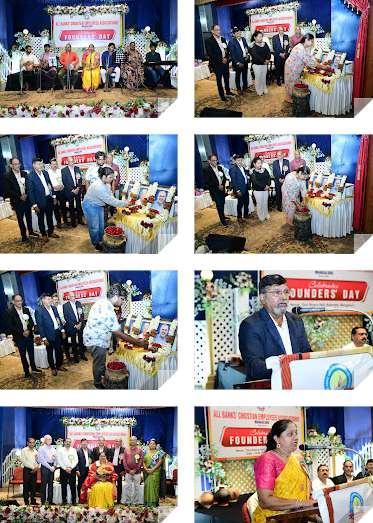

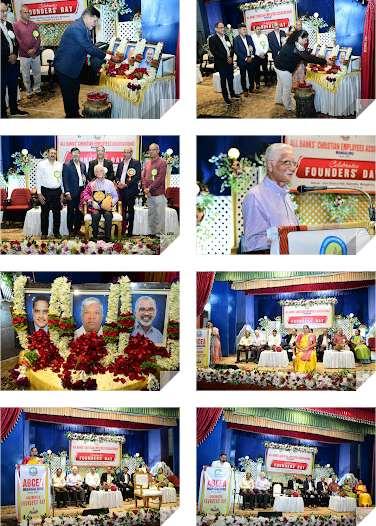


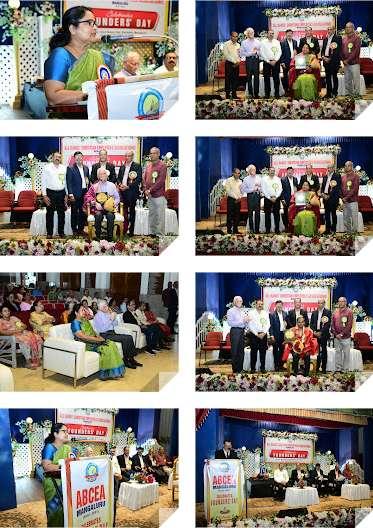
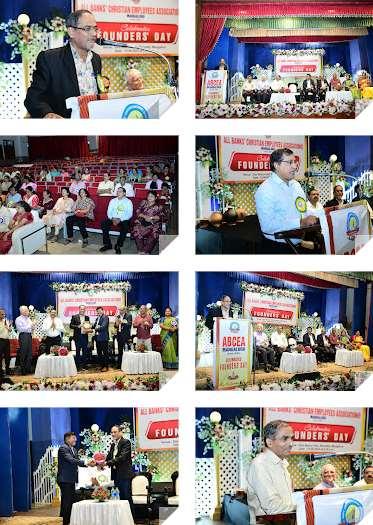
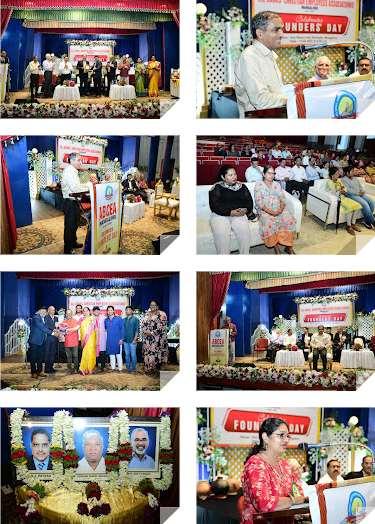


Mangaluru,June15,2025-TheAllBanks’ Christian Employees Association(R),Mangaluru(ABCEA), celebratedFounders'Daywithgreat fervorandenthusiasmatDonBosco Hall in Mangaluru. Mr. Marcel M. D'Souza, President of ABCEA, presided over the function, which was graced by Chief Guest Mr. AlwynD'Sa,RegistrarofSt.Aloysius College (autonomus) Mangaluru.
During the event, loving tributes were paid to the memories of Late Mr. D.J. Patrao, Late Mr. Edward E. Ferrao, and Late Mr. Vincent L. D'Souza, who played significant roles in shaping the association.
The program also included honoring eminent personalities from the Catholic community, namely Mr. Allen Pereira, ExChairman of Bank of Maharashtra, Mr.CharlesLobo,Ex-ChiefofIndian Postal Service, Mrs. Sandra Lorena, Ex-General Manager of Karnataka Bank Ltd., and Mrs. Irene Rebello, District Manager, NULM & Director of MCC Bank Ltd.,They were felicitated with shawls, flower bouquets,andmementosastokens of appreciation for their contributions.
The evening was filled with entertainment, courtesy of the Kulshekar Gumtam Group, lead by Mr.Anil and Mrs Irene Rebello, which performed a captivating Gumtam show.
Mr.MarcelM.D'Souzadeliveredthe welcome address, while a vote of thanks was proposed by Mr. Sunil
Menezes, General Manager, MCC BankLtd.toexpressgratitudetoall participants,guests,andorganizers. Mr.DolphySaldanhacomperedthe prigramme.
Theeventconcludedonahighnote, with attendees expressing their joy and appreciation for the celebration.



BudkuloMediaNetwork
Bangalore:Eminent Advocate in HighCourtofKarnatakaDilrajRohit Sequeirais the newPresidentof Bangalore Chapter ofGlobal Organization of People of Indian Origin (GOPIO).GOPIO held its annual general body meeting yesterday, June 20th at Bangalore andconductedelectionforitsoffice bearers. Following have been elected as OfficerBearers:
Chairman – Dr. Abraham Ebenezer,Patron – Dr. Sunny
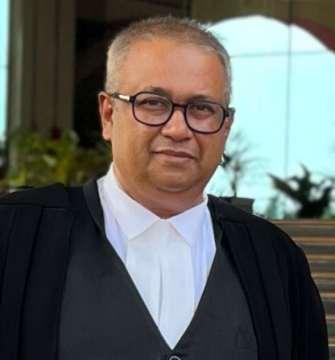
Kulathakal,Vice President –Rajendran, Secretary – George Varghese,Treasurer – Philip Cherian.
ExecutiveMembers:RajeshJohney,
Amith Negli, Vinod, Jayanthi, Elvis Joseph.
Advisors:Mathew Thomas, Professor Radhakrishna, Ambassador Dayakar Justice Gopal Gowda.
Vice Presidents of Councils:Charity – A.T. Jacob, Business – Rajesh
Johney, Education – Dr. Rajesh
Palayil, Women – Rashmi/Carol,
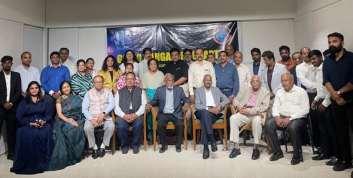
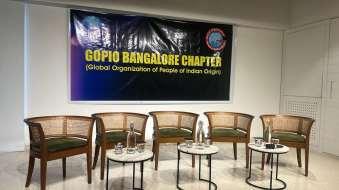
This is a significant step in strengthening the voice and representation of the Indian diasporaintheregion. The annual general body meeting broughttogetheradiversegroupof accomplished individuals from various sectors, united by a shared vision to serve and empower the
Youth – Deeshal Sequeira, Science &Technology – JayanthiAmarnath, Legalforum–Dr.JoseVarhese,Joint secretary and Membership Coordinator – Amith Negli, Art & Culture – Sridhar/J.R.M. Prasad, Program Cordinator – Tibin Thomas/Abhilash.
Source:Budkulo.com
community. Duringthe session,the chapter officially introduced its members, discussed its core objectives, and allocated key responsibilities.
A major highlight of the annual general body meeting was the formalelectionofofficebearersand committee leads. Members were nominated and elected to various leadership roles, establishing the chapter’sfirstgoverningbody.Each member was given a specific responsibility aligned with GOPIO’s mission to promote community development, cultural exchange, and global advocacy for people of Indianorigin.
Speaking at the annual general body meeting, the newly elected chapter leadership expressed their commitment to creating impactful
initiatives and fostering stronger ties among the global Indian community.Themeetingconcluded with plans to organize outreach programs, cultural events, and knowledge forums in the coming months.
TheGOPIOBangaloreChapterlooks forward to contributing meaningfullytotheglobaldiaspora dialogue while addressing local communityaspirations.
NewlyelectedPresidentDilrajRohit Sequeira gave vote of thanks and
undertook to perform the obligation in cooperation with all theofficebearersdiligently. About GOPIO:The Global Organization of People of Indian Origin (GOPIO) is a non-partisan, non-sectarian international organizationcommittedtothewellbeing of people of Indian origin globally. With chapters around the world, GOPIO fosters networking, community development, and advocacy on issues that affect the Indiandiaspora.

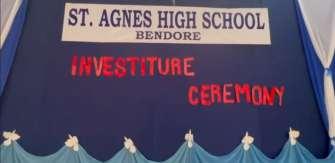
The Investiture Ceremony of St. Agnes High School was held on 19th June at 1.30 p.m. The ceremony commenced with amarchpastbythemembersofthe schoolparliament.This was followed by ameaningful prayer service, invoking blessings for the leaders as they stepped into their new roles. Kadhijah welcomed the
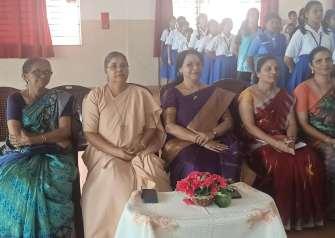

guests and the hosts. As a gesture of appreciation and environmental consciousness, the Headmistress extended a warmwelcome to the Chief Guest, Dr. Professor Devi Prabha, by presenting her with pottedplants.
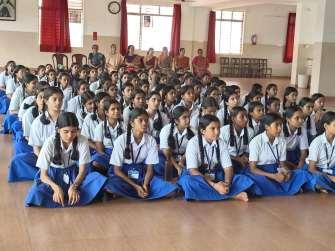
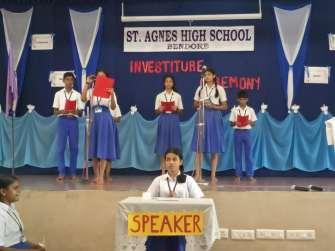

The best part was theOath-Taking Ceremony. The chief guest administeredanoathtothecouncil of ministers. Thecabinet members, including the Speaker Ritu Lobo,SchoolPupilLeaderPrithviraj, assistant School Pupil Leader
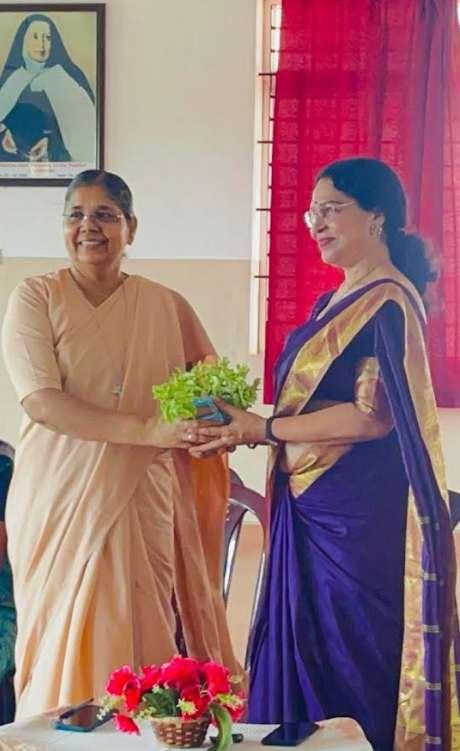
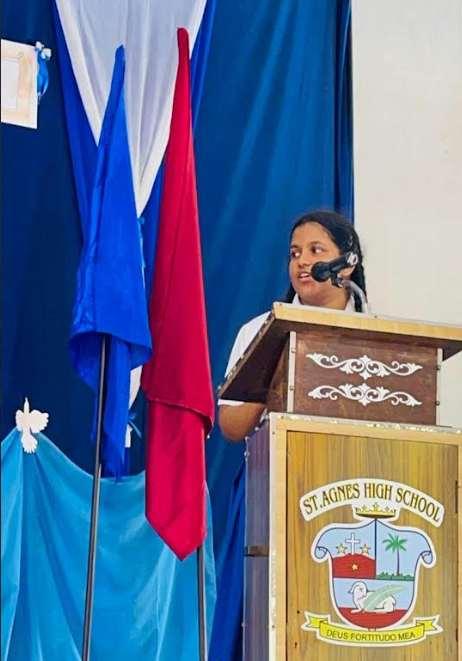
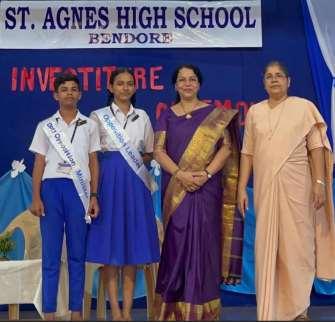
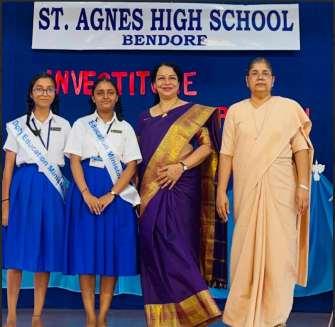
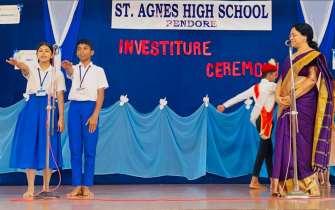
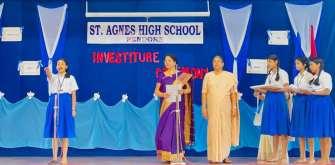
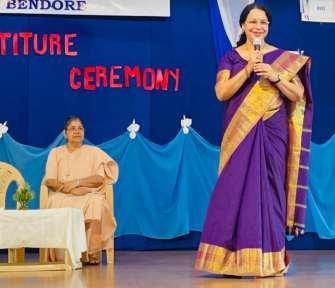
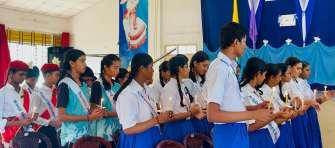
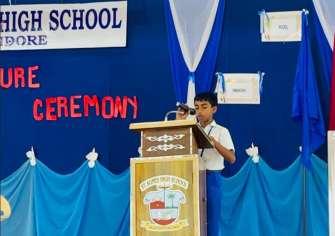
KashishKunder,andMinisters,took theiroath of office. They promisedto uphold the school's valuesandtoleadwithintegrityand dedication. TheOpposition LeaderTrisha and Membersalso took their oath, signifying a
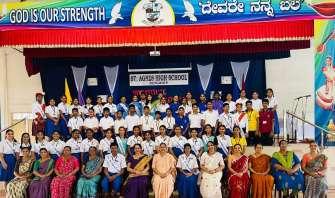
democraticsetupwhereeveryvoice mattersandeveryrolehasvalue.
Theleadersweretheninvestedwith their badges and sashes, by the chief guest Prof. Devi Prabha and the Headmistress Sr. Gloria A. C. A touching moment followed when theAlma Mater of the schoolhanded over theschool flagto the student leaders, along withafewwordsofinspiringadvice, urging them to be torchbearers of the institution's ideals and to lead byexample.
The Chief Guest was thenformally introduced by Yashmitha of class10,highlighting her
remarkable achievements and contributions in the field of educationandleadership.
In heraddress to the students, the ChiefGuestusedtheacronymofthe words WATCH and LEADERSHIP to explain the value of action, character, determinationresponsibility, honesty, and empathy. Her motivational speech inspired the student leaders toexpand their vision of leadershipbeyond authority to service and accountability. The members of school parliament lit the candles through which they not only acceptedtheresponsibilitybutalso vowedtoservewithcommitment.
The event concluded with a heartfeltVote of Thanks by Ruben Vakkayil. Tanisha Ullal gracefully comperedtheceremony.



Bangalore | June 20, 2025

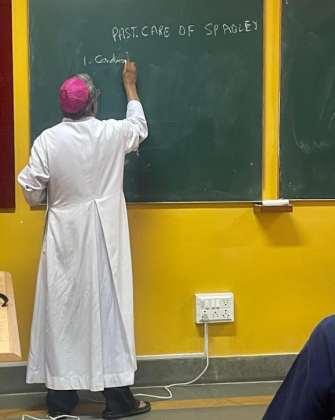
Inasignificantsteptowardbuilding a more inclusive Church, Diocesan Secretaries for the Commission for the Differently Abled from across Karnataka gathered at Subodhana, the Regional Pastoral Centre in
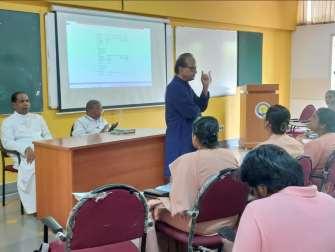
Bangalore, on June 20, 2025. The meeting focused on reviewing the implementationofthePastoralPlan for the Differently Abled and exploring ways to deepen the Church’s commitment to the spiritual and social integration of persons with disabilities.
The highlight of the meeting was theconcludingaddressbyHisGrace Most Rev. Dr. Peter Machado, Archbishop of Bangalore, who
provided a deeply inspiring reflection on the Church’s responsibilitytowardthedifferently abled. He outlined five core focus areas:
1. Pastoral and Spiritual Care –Encouragingparishestomaketheir spaces accessible, assist mobility to the church, and actively involve personswithdisabilitiesinliturgical and community life.
2. Inclusive Education and Employment – Promoting inclusive educationinChurch-runinstitutions and facilitating employment opportunities based on skill and dignity.
3. Support for Parents, Guardians, and Catechists – Recognizing caregiver fatigue and the need for emotional and spiritual accompaniment, he suggested organizing retreats and support sessions.
4. Participation in Social and Public Life–Emphasizingtheresponsibility of the whole community to ensure the differently abled are fully included in civic and Church life, with active youth engagement.
5. Networking and Collaboration –Callingforclosercollaborationwith otherChurchcommissionsandcivil society organizations to ensure a comprehensive and coordinated approach.
Earlier in the day, Ms. Estelle D’Souza, Regional Secretary for the Commission, welcomed the participants and presented a brief overview of the journey so far. She later introduced the Action Plan Matrix, a structured roadmap designed to help dioceses implement the Pastoral Plan effectivelyatthegrassrootslevel.Fr. AnilPrasad,RegionalCoordinatorof KRPPIC.Fr.Prasadlaidoutthevision and framework of the Pastoral Plan of KRCBC.
A key input session was led by Mr. VijayKant,apioneeringfigureinthe field of disability advocacy. He provided a detailed explanation of government schemes, disability rights laws, and welfare provisions, urging Church leaders to engage more actively with public systems and policies to serve the needs of the differently abled.
Themeetingalsofeatureddiocesan sharing, where each representative presented their current initiatives, challenges,andsuccessstories.This exchange fostered a spirit of collaboration and offered a platform for mutual learning and encouragement.
Beginning with a reflective prayer, the one-day meeting brought
together Church leaders, pastoral workers, and advocates committed to ensuring that persons with disabilities are not merely accommodated but are welcomed, valued,andempoweredinthelifeof
the Church. The event marked a renewedcommitmenttobuildinga Church that reflects the inclusive love of Christ.
ByEstelleDsouza

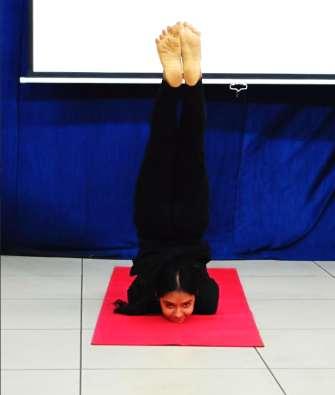
Milagres College of Nursing, in collaboration with Milagres Central School, Mangalore, joyfully celebrated International Yoga Day on June 21, 2025, embracing the global theme: “Yoga for One Earth, OneHealth.”
Theeventaimedtoraiseawareness
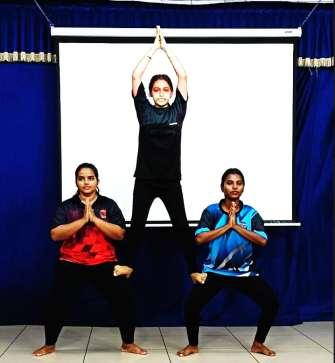
aboutthesignificanceofyogaasan ancient practice that fosters both physical and spiritual well-being. Thecelebrationbeganwithaformal introduction to the importance of InternationalYogaDay,followedby a warm welcome and the ceremonial lighting of the lamp, symbolizing the dispelling of ignorance through the light of knowledge.
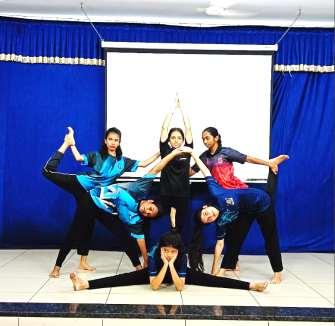
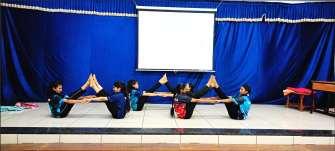
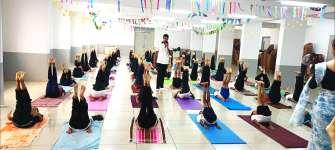
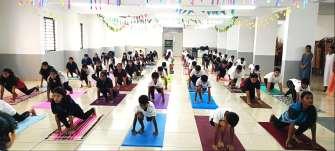
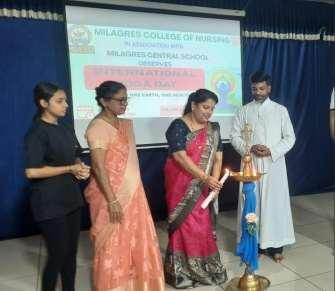
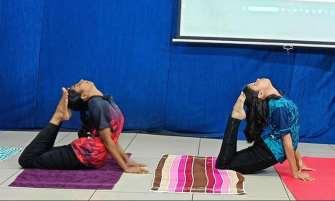
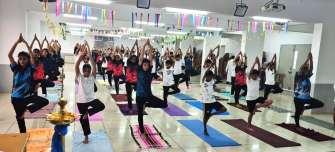
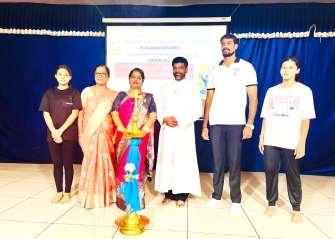
At 8:00 AM, a one hour mass yoga session was conducted for the students. The session started with warm-up exercises and progressed to a series of seated and standing asanas. Participants engaged in various yoga postures including
Shavasana, Vajrasana, Trikonasana, Surya Namaskar, Chakrasana, and Vrikshasana.
ThesessionwasledbyMr.Keshava, , who provided detailed guidance on each pose along with the necessary precautions to be followed during practice. A total of 80 participants actively took part in
the session, reflecting the growing enthusiasm for incorporating yoga intoeverydaylife.
This celebration served as a powerfulreminderofyoga’sholistic benefits enhancing physical health, mental clarity, and inner peace— and inspired participants to continue the practice beyond the event.


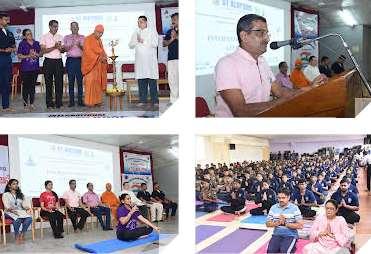


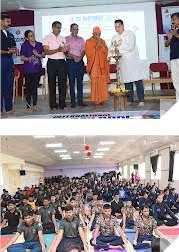
The Department of Physical Education and Sports Management of St Aloysius (Deemed to be University) in collaboration with NCC, NSS, YRC, Delampadi Yoga Foundation and Decathlon, organized the 11th International YogaDayunderthethemeYogafor OneEarthOneHealth.
Speaking as the chief guest of the program, Swami Jitakamananda Maharaj of Ramakrishna Math said thatyoga,whichoriginatedinIndia, is practiced by most of the people
of the world today. Yoga is a method of developing a holistic personality. He said that practicing yoga balances the body, mind and energy.
Vice Chancellor of St Aloysius University Rev. Dr Praveen Martis presided over the programme. He saidthateveryoneshouldengagein yoga practice for a stress-free life and yoga can provide deep peace and tranquillity to the mind by balancing the body and mind. He also said that St Aloysius University is always encouraging the yoga activitiesofitsstudents.
Neeta Shetty, Yoga Director of Delampadi Yoga Foundation, provided appropriate guidance to
dotheyogaasanas.RoshaniShenoy and Sanvi Shetty, yoga students of theuniversity,collaboratedwithher. Staffmembersoftheuniversityand a large number of students, N.C.C. Cadets, N. S.S. students, Y.R.C. students and yoga students participated in the Yoga Day celebration with great enthusiasm. The institution's Registrars Dr AllwynDSaandDrRonaldNazareth were present.Program Coordinator Dr Ishwar Bhat welcomed the gathering.ArunD'Souza,Directorof PhysicalEducationoftheuniversity, proposed the vote of thanks. Roshani Shenoy compered the program.


